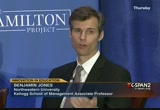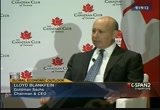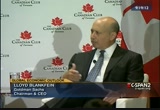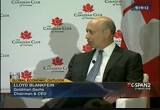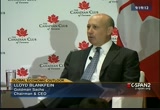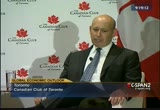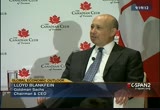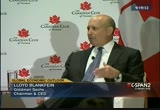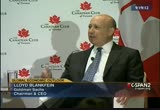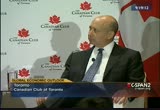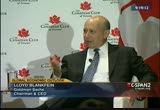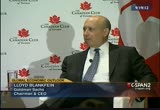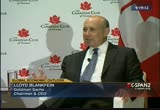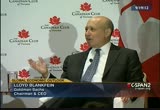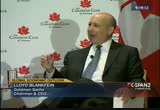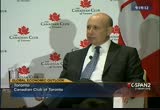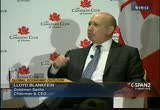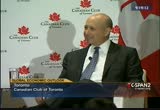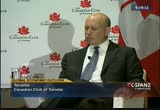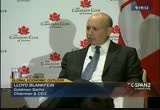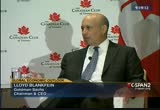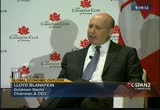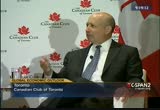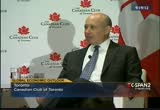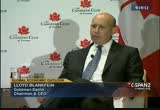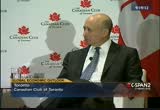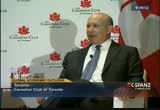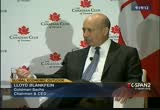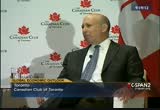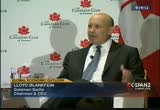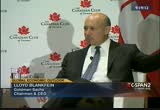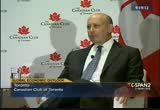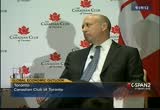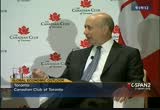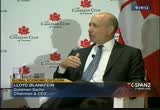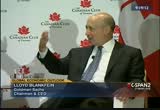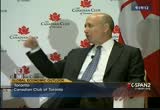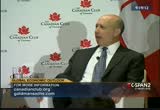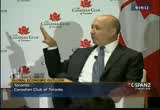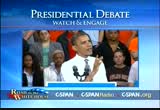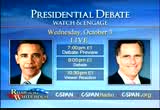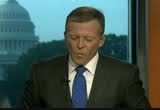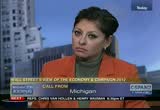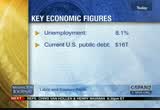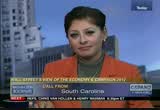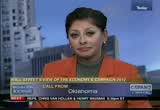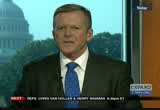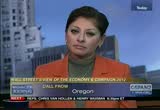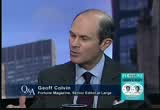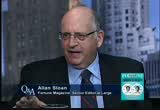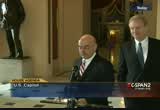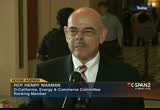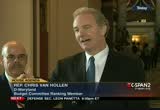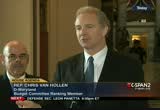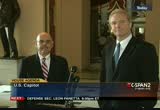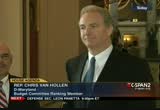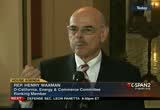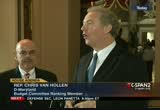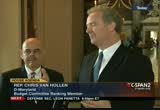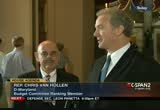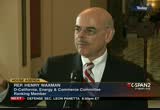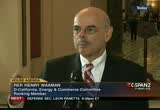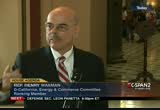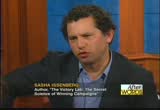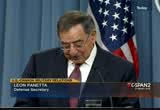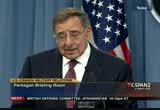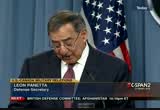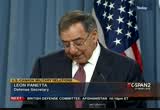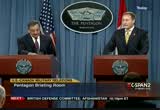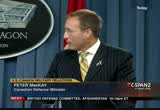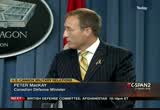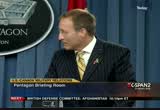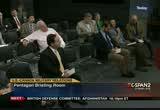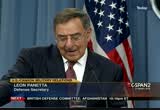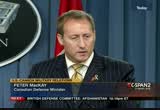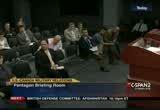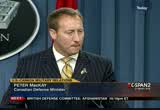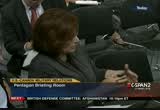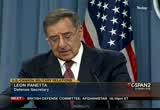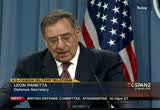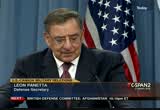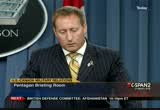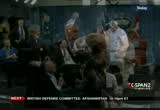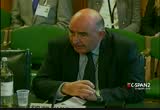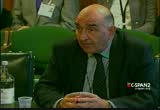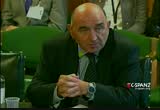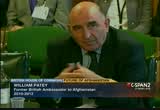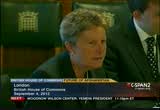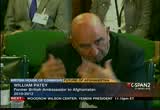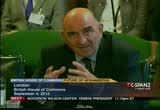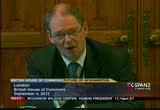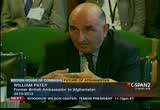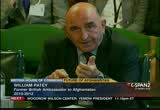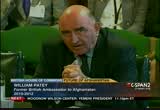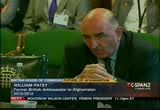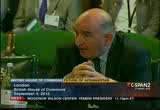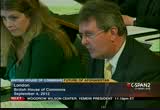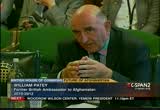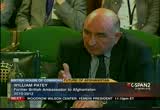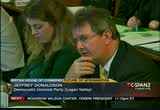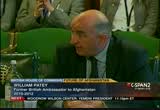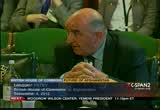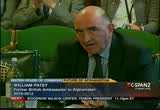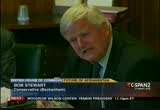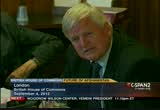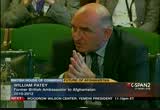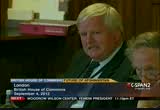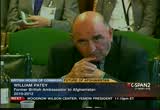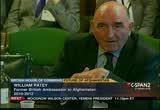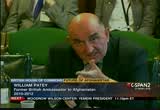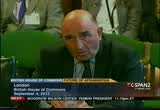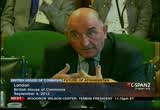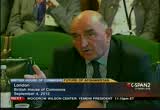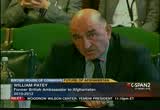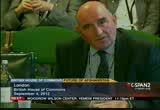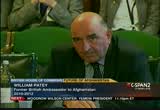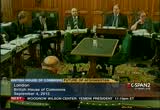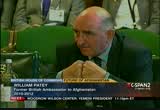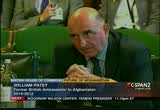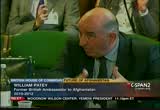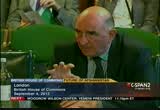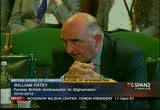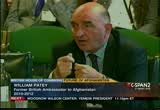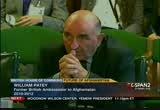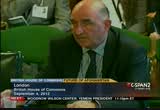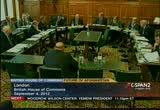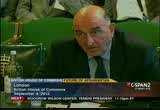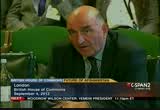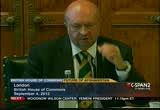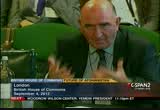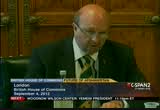tv Tonight From Washington CSPAN September 28, 2012 8:00pm-11:00pm EDT
8:00 pm
which is already a large school district. this will be different, but perhaps regardie signaled interest in innovation and technologies willing to become part of the place to the. so as they probably hope it happens and we can overcome, but it will require if we get a lot of excitement. >> at everyone join me in thanking our excellent author is an excellent panelized. use] ..
8:01 pm
>> this is a new job for me. i feel very powerful. >> you are very powerful. >> i feel much more powerful as a journalist than i do as an asker of questions. delighted to have you here and i know the audience is very much looking forward to your perspective on what is going on around the world and what is going on around this financial services industry which is
8:02 pm
certainly facing some challenges. i thought we would start with your views on the global economy and perhaps you could start with europe and make your way around the world and perspective on what you see in terms of growth and perhaps more importantly you know, what are the challenges that we are going to have to deal with over the next period of time? >> there's not enough time for all the challenges but let me give you some perspective. let me get to -- let me give away the punchline. the punchline is i think in a world races, the world is not going to come to coming to an end. we are going to muddle through but there are a lot of challenges and a lot of risks that i think the largest outcome come the largest for signage likely outcome by far is that we get through it and a lot of action were to be taken to offer some relief but there are several things that could cause things to derail in which case it would be a lot tougher for a lot longer. but you asked about europe.
8:03 pm
i think the biggest problem that europe has is growth and the risk problem is the go off the rail, bus stop of the euro. a few months ago we would have said that the two big issues for europe is do they have the capacity to bring the periphery a long and two by enough time and give enough support to cure their ills and then the second one is do they have the political will with the latter question being the most important question. all the pundits in the world say the germans will never support this and never support that and i would say if we saw anything in the last few months, it confirms that they have the capacity because you can see they have gone all and and i believe they have the capacity to do it, but what is a surprise to many but hasn't been a
8:04 pm
surprise to me for a long time because i go and talk to some of the leaders there is the political will to make europe work and the euro work. you have to remember that was a political construct, not just an economic construct and they were the history very close to service and the importance of europe is if this fails it is 100 years before he can go back and think of the united europe and the consequences of this united europe feeling heavy to the leadership. so you can see this as local. certainly the etp would have been able to provide virtually the quiddity. they were able to without the acquiescence of the leadership of germany and a lot of these places around europe, the pro-european party in the election has one and the opposition is more european. so i feel that it's going to be a muddle through. the real issue of course is growth and the real issue is how do we solve the long-term
8:05 pm
problems and those things are things are antagonistic to each other. austerity means deflation and not growth and that is the real challenge. how did they sponsor growth in the short term and promised the market austerity and more balanced budgets in the long term and that is a challenge ahead but i've spent enough time in the political will to get the stem but their challenges and there's a chance of going off the rail there. it is unlikely this point and less likely than it would have been four months ago. >> so you think your partner has done the right thing at the bottom purchase program? a lot of people would say it kicks the problem further down the road. >> well i would say the first thing you have to do in any kind of tree our situation is you have to stabilize the patient and maybe that is another, maybe that is a different metaphor for people who came down the road but i think they definitely needed to buy time. if they don't engineer structural changes to the economy and then we will look
8:06 pm
back and say my god, if we only bought time. we poured more money after bad money and i wish we had saved up for the problem earlier. essay on the other hand is the time to engineer the structural change which i think everybody knows can be done. the question is there enough courage in the political system should drive those changes to an electorate in the periphery that won't -- then we will say we didn't kick the can down the road. we bought ourselves a necessary time, so i will let you know how it works out and in hindsight i will will second-guess. >> so moving to asia and china and the emerging markets generally but china particularly and then we will come back but obviously chime in is seeking a bit of a slowdown and have significant operations over there. what is your view in terms of the short-term and long-term problems they're? >> in terms of things that could go wrong, the china hard landing versus soft landing issue is i
8:07 pm
would say not the most extreme thing that could go wrong but maybe the highest possibility of something that could go wrong. maybe not the most draconian consequences for something that could really derail everyone's ambitions for accelerating growth or something. a lot of the marginal demand in the world over the last couple of years have come from china and the hope that china stabilizes and rebounders is very important. and i think the jury is still out. don't forget china's going through -- in china, the downturn was engineered to some extent but it was not engineered randomly. it was engineered because things in their structure were taking demand overheated. we saw the real estate bubble in china. when you are making a lot of money and benefiting from a low currency and your cumulative wealth in the country and how
8:08 pm
they manage currency with exchange control, only a few things -- and those of a lot of competition to buy them. we sell real estate prices dramatically in an overheated situation i think they put on the brakes. also every country which grow at that's best of the raid needs of period of time were you slow up and say when every going to write off our mistakes? undoubtedly if we have grown so much, over 10% for so long and then when you have a financial crisis, go out in a program through increased bank lending, how much of those loans are not going to be paid that? how many of those airports a rope ... same time, how many of those roads will go nowhere or anyplace that would be the case? we have ways for writing off our mistakes and much to our chagrin at times, but there we need to slow up and i think we did a
8:09 pm
good job of engineering that slow up, like a plan that goes into a stall. you worry is that going to -- are you going to start those engines before you hit the ground and i think that is, that is one of the -- for the world and it happens to be contemporaneous with the change in political leadership that hasn't gone as smoothly and not that it's going smoothly in a place in the world but it's not going smoothly there and so i think that there is -- you asked me how it works out i think they are getting an amazing job at this point and i have a lot of confidence in the core values the country and the quality of the people and frankly you know only in china are you regarding growth rate as a prompt for handwringing and i really do have confidence. but if this is the century in china at the way some people
8:10 pm
thought the 20th century was the century in america, you have the panic of 07 in the great depression, it's not going to be smooth and when it goes bad and we go through one of those moments in china, it won't feel as one of the bad years of the century. people think oh my god, what was i thinking to begin with? this is bad and it will get better and they will think what was i thinking when i change my mind? of course wealth has been created here and a big population, very commercial. so i think it all works out for a firm like ourselves. we have to make sure we scale our activities and stay engaged and keep ourselves active and engaged during the slower period so we preserve our pretend he's during busier periods but i am confident in the outcome and we have to recognize it as one of the risks of the world but instead of providing a lot of extra demand china disappoints. but it won't be up for a long time if it does. >> in the u.s. now we have had
8:11 pm
five years with zero growth, high rates of unemployment. there is still a balance which is quite remarkable and structurally unsustainable with very little political will to deal with it. here in canada we look at the u.s. with amazement because -- >> who are these people? >> we went through this in the early '90s and took political action to put our fiscal health in order and obviously that is a bigger challenge in the united states were adding a trillion dollars in debt year after year -- though how does it unplayed? >> that could serve as a source of entertainment to the canadian community. >> how do you think the u.s. does play out? >> i think that is a big risk and the frustrating thing in the u.s. is that the core is so strong and so good. you know we have illegal immigration by the way the
8:12 pm
average -- no growth over five years which includes a downturn but basically it's a big economy in 2% on a big economy as a big number and i think it goes. but it's very -- these problems are self-inflicted to a great extent and it makes it all the more frustrating and it must be frustrating to watch last summer with the debt ceiling and save why don't you compromise and why don't you get this done? i would say it's sometimes more frustrating to watch something that you can undo. it's like seeing it spiraling and you wish you could stop it and is within everybody's power to stop it. i think it's a political system to some extent. , it is starkly in the u.s., it never crashed and burned and people do assert themselves and
8:13 pm
do eventually have a profile of courage moment where they step out and they make those changes and it won't look like that before it happens. but generally it happens and i think people -- the way america has always structured the two-party system. it's not a parliamentary system. you are supposed and frankly the moderates of each party getting together and forming a majority recognized that each party, the left will have its radical left in the right will have its radical right but the country was designed to steer course because the group that we were supposed to pick together was not to have one party, you're supposed to have the moderates in one party exceed to an extreme. you're supposed to have the moderates from each get-together and fashion -- >> that is assuming there are moderates. >> there are always moderates but if moderation is the
8:14 pm
pejorative, you're not going to have a lot and a guarantee of your failure in the polls, which it seems to be in some cases. that is not you know a good environment for compromise. so, things have always work themselves through and i think they will now but that fiscal cliff thing is looming as a real problem and it doesn't have to be because the basic guts of it are good and i think having, relying on the central bank to shoulder all the burden of charging the economy and abandoning the fiscal side because of the difficulty in the political process you know is unfair and gives us a skewed and unfair view of the rio i think in a lot of ways courage. whether it works or not is still open to debate and people are certainly exercising their power to grant it fully but if you
8:15 pm
are -- if only one side of the car is driving you will go in circles. >> we just had simpson-bowles and two years too late with a couple trillion dollars extra debt on top. >> sometimes the policy needs that time to sort out. the fact that it's an efficient in the long term, the efficiencies we take in order to get people to throw in, the long-term is what makes the system stable. so i'm not worried that we will get it and let me say on the more optimistic side people -- you don't get a debate in in the united states of whether the u.s. has a fiscal deficit problem or whether it has to be solved. a year ago that was debated and now the debate is however going to solve the? are we going to solve it on the revenue side? are we going to to solve it on the expenditure side? there is no one who is saying we should widen the deficit.
8:16 pm
everyone exceeds to it that the real debate is about how we get it done and also the nature of the government that is the consequence of how gets them. obviously government will grow. if you shrink the budget the government will retract and that has implications to the budget. it's an ongoing debate always in america but if you think about what has been accomplished in the last year everyone knows we have to solve the problem. how to solve what has resulted in an impasse and, but the fact that everybody agrees it needs to be solved is really the most important thing. >> but it seems to me that it's a math problem and as you said, if you have got you know slow but stable growth for an extended period of time here than ultimately the raponos have to go up and expenditures have to go down. neither of which is particularly healthy in terms of economic growth. if you have taxes going up in the united states and expenditures going down ultimately that has to happen if
8:17 pm
you are going to solve that math problem in a slow growth while. >> at the same in europe and the same everywhere. we all grew up with spending more money. we only have to do two things, spend more money to charge of the economy and spend less money in order to shrink the deficit. all goes to show whether you're a country or a company is when you get in trouble here options are reduced. and so this is not easy and of course the options have been reduced. you can't go out and have another stimulus and look at the consequences to the balance sheet as a result of what that will be. what you are going to have to do i think is you are going to have to not shrink -- not push austerity in the near term because that is the fiscal cliff then you will have to keep going on certain things and not the stimulus but not take away the punch bowl within the near term but you are going to have to convince the market and the lenders and galvanize the
8:18 pm
country that in the longer term you are going to get those things done. this goes back to your point about kicking it down the road. you will have to show the resolve to solve this problem over the longer term but in the short-term, it's not going to be very good if the medicine you give kills the patient so going back to your first question which is right, what he think about europe and what he think about growth? unique growth also and you can't austere yourself into a higher gdp. so i think the issue is going to be implementing budget changes that accelerate over the long-term but in the short-term i wouldn't take too much money away from people for cut back on a lot of expenditure programs. >> moving on to the social implications of what has occurred over the last five years, the way i describe it to my kids is that our generation, you and i are the same
8:19 pm
generation, had an incredibly lengthy party. we are now suffering from a hangover. we are turning to our kids. >> this is how you talk to your kids? [laughter] >> we are now turning to our kids and saying it's your job to clean up. [inaudible] so you look at the next generation you have high youth unemployment. in europe the numbers are staggering and even in the united states if you look at the real youth unemployment numbers they are well into the high double digits and you have got the occupy occupy movement and a lot of social unrest and the inequality issue. obviously goldman has to some degree than at the center of that discussion and debate. what is your take on the social implications of what has happened in the financial services industry and the global economy and how that plays out and the impact that might be in terms of political flexibility going forward? >> i think the last question is really the punchline and draws
8:20 pm
out the punchline. look, let me say it's not just in the last five years. to some extent we are stewards of the economy. marketeers played a role in abetting the times we walk around like you know to some extent, this is a bad analogy but you can be the samurai class and if you lose a war you have to be prepared to take the consequences and you get the benefits when things are good because you carry yourself in a certain kind way you will have to, it's not fair to ask people to bear the brunt of the failure of the system that you are picked part of. it's not just five years. if you look at the widening of inequality in the united states, it is the name march for 30 years and so people and to some extent, don't think there's a lot of social unrest in the united states. maybe people worry there will be more and i don't want to --
8:21 pm
because it's inappropriate to be nervous but don't forget the united states has a political system and people's voices are heard and to get the ships, so that appropriately takes the starch out of it because people can express themselves at the ballot box and they do but you don't need to have social unrest per se to recognize that the two goals of the financial system and not just the financial system but the whole economic and production system should be to expand the wealth of the world into distributed fairly. the two are linked but they are totally separate because we are the richest country in in a world in the wealth were disproportionate you would have a stable society and you have a lot of stable societies that are stable and deadly poor so you need to achieve both and i think in the united states over the last generation or two we have been much better at generating
8:22 pm
wealth and not so good at distributing it in a way. i'm not saying and no one is accusing me of being a socialist and i'm not and i don't believe in wealth distribution or redistribution, overproducing and if you believe in production and he has to believe in incentives and the consequences giving people incentives to bear the fruits of that but over the long term if the system works well it should accomplish both goals and it hasn't accomplished enough of the second goals in the right way and that is what the stress is over. different things are on the fronts of people's minds and different people will get disproportionate. i'm not saying the attention the financial industry gets or the institutions per se or us per per se is unfair. corsets disproportionate relative and it's the nature things and that happened after the depression with the kind of household word in big financial
8:23 pm
institutions and i think certainly to me it's distracting to say the least but i don't want to suggest that -- the notion of it because it's unfair because it's proportionate. it's fair to the extent that we are fiduciaries in some parts of the financials and system and it has not worked well for everybody so we have to go out and have a good conversation and dialogue recommending change. now the trauma in the u.s. was so recent and so powerful that we are not having necessarily a good conversation or dialogue. people count the number of times you go and visit the white house are you going to the building as if it were, as if the people who manage and regulate the economy are somehow doing something wrong if they talk to the private sector leaders of the economy. there is a certain amount of
8:24 pm
craziness that has to dissipate in and we have to engage in a very serious conversation about something that affects all our well-being. >> goldman socialists would be a pretty good headline. [laughter] >> our industry and particularly in europe in the united states, little bit better here in canada but it's obviously lost a tremendous amount of trust and how does that trust get recaptured? is that starting to happen? what does the industry have to do to -- this is an industry built on trust get is probably the least trusted industry of virtually any today. how do we shift that and how does that change? >> i think, i think it would be a good start would be not to have any more stories surfaced that further erode trust. that would be a good start to stop having problems and i don't know we have run out of problems yet. i think what happens you know
8:25 pm
when you have a crisis like this and things would have been a -- with that at any time and you discover there are things that would have looked bad at a prior time that look that today in what we now know after acquired information about how things turned out and i think we have to work our way through our problems and obviously the anger has to dissipate and the response to it and the reticence that some leaders in the industry including myself a pat about getting out and engaging in a positive way. and then go out and run your business as well to accomplish or social purpose about managing risk and finance good ideas and making good selections on perform the role that you have in the system but also get out and engage and show your bona fides and people who are working
8:26 pm
for, taking positive steps even if some of the steps would appear controversial and not politically correct at the moment. that has to be done. now i will say, if it so difficult and painful to lift your head and it's not going to be effective even if you took the risk. and this is all normal unfortunately. i think time has to go. some of the time has to recede and we have to roll up our sleeves and go to work in the people see us working in engaging in doing the right thing in sharing our view and it makes sense to communicate more that would represent a step in the right direction. if we do that for 200 years people will start to -- >> so financial regulation. i i am of the view that financial regulation the complex it is having a much more significant negative impact on economic growth globally than most regulators are central
8:27 pm
bankers will admit to. but it has had a huge impact and it's had a huge impact particularly in the capitol markets out of business which is virtually 100% of your business. what is your perspective on regulation? i mean is that having a big drag on economic growth? is a too complex for x. fortunately one of the central bankers in jackson hole or one e one of the seek your -- senior executives of the bank of england, it's obviously very politicized, the whole industry. what sort of drag is regulation and politicization of the industry have in terms of our ability to move forward? >> luck, you can't have gone through what everybody's gone through and forget about us. the people who had no good argument on who is responsible but you know certainly a great mass of people at no responsibility at all for the consequences. you can't go through that and
8:28 pm
then say we are not going to go out and do something different. so it's less likely to happen again. forget about, you'll never have another 100 year storm but of course in another 100 years we will have another 100 year storm and some things will happen again. you have to have different regulation leaving more regulations in certain respects and so you will not ever been a situation and it's absurd to say, to just talk about the burdens of regulation without talking about what's driving people to want to regulate so the first thing you have to do is you have to use that injunction. can you imagine if i were not in this industry and i was looking for somebody to say oh my god this can really hurt you if you put bookmark and straight on me, you have to have to be realistic about this. what i think we need to do, what i think is not our privilege but our responsibility as
8:29 pm
practitioners in the market is that we have as best as we can spell out the consequences of regulation and different things in the trade-offs and the political system will appropriately make those judgments and by the way they make those judgments and provide does judgments. right now if you told -- polled everybody if there was a trade-off between regulation or let's say risk and growth, people would say i will abandon growth. just don't be so risky. in a couple of years the consequences so much more capital means less leverage means less loans per dollar of capital and if you live with the consequences of the a world that is -- with less leverage in a couple of years when it has receded you might say do you know something? i would like to revise their position where we are.
8:30 pm
i think our job is to explain to people what the consequence of this is. make them understand and accept the fact that the pendulum may lean a little far because of the recency of the trauma. we will never have an eastern long island where i live, except for the summer where we had for. if you price hurricane insurance off of four hurricanes nobody would ever build a house again they are. and we have never had it before so insurance premiums quadrupled the next year and over the next five years it went down. actually the year after those hurricanes there was no more risk of hurricanes than the year before but riskiness and the trauma and how painful things are will have a real effect on people's calculus of the risks they want to take going forward and overtime tickets to a sensible level. i think regulation is best done
8:31 pm
if you have the depression in 1929 and the first legislation that was passed was the securities and exchange act of 33 followed by the exchange act of 35, 37, 39, 40 nick at getting modified their long the way. i think that will happen now. now i think basel and the additional i think that is the most important thing. banks should have more n. more liquidity. the devil is in the details but that is the certain capital requirement onto securitized products because that is what seemed to seem to blow up mostly before you make it excessive in the bank won't hold inventory for securitized products and where is the mortgage going to go? you will say the mortgage market, look how it got us into trouble but in four years and now the only comment -- housing
8:32 pm
being finances by bye bye government demonstrations we won't like that. so where you want to be on the spectrum clinics you can't go to an extreme. we don't want to impoverish herself by saying you have to limit yourself with no risk. so i don't want to diminish the exercise by saying it but if you have to run yourself so you won't get hurt by the 50 year storm, the problem that occurs once every 50 years and the other 49 years in between are not going to be that fun but if you run yourself so you can get -- so that is how you have to think about it but we have to have that conversation not as -- this is a predictable consequence of attaching this risk weighing with this type of asset and by the way i and i can speak for the u.s. there's a lot of engagement between the regulation and a practitioner of the market as there should be. >> and the politicians, did they get in the way?
8:33 pm
>> well, it's bifurcated because even the politicians that seem to be saying provocative things that are trying to get it right in there trying to get it right. politicians have the number of jobs including -- i mean look you have to leave the electorate but you have to be elected by the electorate. if you lean too far you don't bring people with you. i don't think it's an easy life trying to be a politician. the pressure they're under and the demands on them and at the same time i haven't liked everything has gone nor did they like everything we have done. >> i think we are almost out of time here. let's move to our oldman specifically. obviously you have some unique challenges as a result of the change of the market when you look at the return on equity across the capitol market it has come down dramatically.
8:34 pm
how you deal with that strategically going forward and you know is goldman better off being a bank or banking and going back to its traditional investment banking roots? it seems to me that when you look at the model today goldman would be better off with the traditional investment bank as opposed do you know being subject to banking regulations under basel and the other rules. how you deal with that strategically? >> sure. one of the reasons, i would say the way the regulation as now structured and the rules haven't all been written and we are not sure but the legislation, and you know this also, if you are a systemically important financial institution like citi whether or not you are a bank you will be regulated to a great extent as
8:35 pm
if you are a bank and by the way that is a policy decision that makes sense. make sense. there were a lot of non-banks that are systemically important and if they would rent they not only burden their own shareholders but it could hurt the whole world. everybody has an economic interest in making sure that they are well-run. so you could not shed the bulk of the regulations attached to us even if we were to become not a bank. we don't really shed those necessarily and we are not sure exactly the details but any appetite in the united states for us to be less regulated than we are effectively as if we were a bank and so we are not really in a position, and we don't own that choice, to get out from under the regulation and be regulated as we were as a total non-bank. we'll have to see what the choices are but we have no necessary intention today. but you know the predicate to your question is our activities are almost entirely
8:36 pm
non-commercial banking activities, not consumer banks. everything we do is a wholesale market -- [inaudible] so you would think we would sit logically in a system that had a lighter regulation for a non-bank that because of our size and are systemic importance there is no real interest in taking away most of those regulations. we will have to see with the choices are the future. >> last eagle, sandy weill's came out is that it should be reinstated. i think the misconception there is that most of the the high-risk balance sheet activity is not an investment bank system. any rationale behind a? >> the risk of activity in the world is uncorrelated and correlated lending whether it's in the form of ceos or mortgages or leverage finance. they were all bending in one form or another.
8:37 pm
in the economy went through a recession 90% of the losses were due to -- not necessarily the trading activity although i will tell you it turns out a lot of those banks have a lot of loans in inventory. so we are going to stay a wholesale bank wholesale investment bank and we are frankly the only ones left. morgan stanley is but as you know they just ought the big retail business and they have gone into retail. gee i hope they are right. >> last man standing. >> will i don't want to be the last man standing for a few minutes. [laughter] the point is we have always had a matter of strategy 20 years ago that if we stayed focused on our core competence and not
8:38 pm
branch out that we never do as well as you do, so we are advisers, were financiers, we are asset managers. in a wholesale world there clients are big companies and investment managers and that is what we know how to do. >> we thought we did that part pretty well. >> you do. >> i am getting the hook here. i'm getting the hook here so one quick question. u.s..com u.s. bonds, u.s. real estate, which would go long in which would go short over a 12 month period not? >> u.s. stocks, bonds and real estate. i would say -- thank you. i would say at this point with the fed and central banks around the world -- the stimulus program begging obviously airing on the side of willing to suffer a higher risk
8:39 pm
of inflation to eliminate some proportion of the risk of deflation. i accept that invitation to have higher asset prices and so i would go along more for the real assets and always see the central banks are putting up penalty on holding cash and are trying to incentivize everyone to go into a higher asset. they may be unsuccessful but i will tell you more inflationary expectations seep into the world that would be very positive and by the way there is a real playbook for stamping out inflation once you have it. it's hard to know what the playbook is. if you think every day the world will be cheaper tomorrow every day you'll wake up and say i will wait until tomorrow. in an inflationary environment and you say i better do it today
8:40 pm
before it gets more expensive tomorrow. inflation is cruel to certain groups but when you have gotten out of it before you know how to do. deflation is much more insidious and much longer so i will follow the will of the central bank. i would rather hold asset prices. >> so you are long real estate. [inaudible] >> shortt bonsignore uncommitted work as the eye of cheapest form of commerce, work and advice. >> lloyd it's great to have you here, very candid and upfront discussion and a great round of applause for our guest of honor. [applause] >> thank you. >> my opponent and his running mate are big believers in top-down economics. now they basically think of way
8:41 pm
to spend another $5 trillion on tax cuts that favor the very wealthy -- don't boo, vote. [cheers and applause] >> he's got new idea. one thing he did not do in his first four years, he said he is going to do in the next four years which is to raise taxes. is there anybody who thinks that raising taxes will help grow the economy? no, his plan is to continue what he is done before. the status quo has not worked. we cannot afford four more years of barack obama and we are not going to have four more years of barack obama.
8:42 pm
we talked to cnbc host maria bartiromo about wall street's view of the economy. this is 50 minutes. >> host: joining us from our new york studio is a familiar face to anyone who is turned on cnbc, maria bartiromo who is the anchor of closing bell on that channel. maria bartiromo i want to start by asking about to headline this morning in "the wall street
8:43 pm
journal." the side-by-side numbers trouble ahead. this is about the drop in durable goods that was reported yesterday and the headline next to it is, obama trumpets revised job data, saying we are adding jobs. how would you describe our economy today? >> guest: i think right now the economy has worsened. you have got a jobs problem pretty severe and persistent. at 8.1% of the country without a job and of course we know that does not include those who have simply stopped looking so then employment rate is or like 11 or 12% of the country. you mentioned the durable goods numbers yesterday. that indicated things like washing machines and other big-ticket expensive items, waiting to put big money down on important purchases and then of course you have got the gdp numbers yesterday which came out
8:44 pm
and showed that growth was revised downward, economic growth was revised downward to show it a gross number of 1.3% which is pretty anemic. that is down from 1.7% so from that report we say things have actually worsened in the last couple of months in the neo-got the issue of business is businesses really sitting on their cash. right now corporate america frankly is pretty strong. corporate america over the last four years ever since the financial crisis has really slimmed down and companies, large and small, are lean and mean. they are looking at cash on the balance sheet, profitability because they cut so much, they have cut to the bone. they cut jobs and cut investment and r&d spending so they are sitting on some $3.6 trillion in cash on balance sheets. the issue is that they are not spending it and they are not spending it because there's so there is so much uncertainty in this economy. they don't know where tax rates will be next year.
8:45 pm
they don't know what the whether what the rigatoni environment will look like next year. they don't know what demand will look like next year and so because of these uncertainties as a result of the fiscal cliff and the fact we haven't had any policies really coming out of congress and the white house to really fix it, to solve the monetary policy the federal reserve has been the only game in town to really provide stimulus for this economy. we don't have an energy policy and we haven't had a budget in three years. as a result, businesses are waiting to see what happens in this election than they are waiting to see what their lives will look like, tax rates, regulation etc.. they are upset by the health care expense of their waiting until after the election to really decide if in fact they will hire new workers and put their money toward erpa so i think we really are in standstill mode unfortunately with the u.s. economy right now. >> host: another story from
8:46 pm
political this morning and here's the headline. wall street braces for an obama win. mitt romney was wall street's big candidate. a former private equity exec who who -- many masters of the universe can see they may not get their man. the broader landscape of corporate america even strong supporters of romney acknowledge that swing state polling numbers in the direction of economic data and markets adjust its time to brace for a second obama term. i want to ask you also about using the word brace in this story. jaczko yeah, i mean i think you know the president has had an antagonistic relationship with business. i think that's pretty clear and so he did over the last several months i think lose the independent vote and certainly the business vote and so the
8:47 pm
number show he is actually winning i could understand that now they are disappointed it does they were counting on the competition, but i don't think you can really tell right now. i mean it's hard to know how accurate these polls are. in some cases i think the media is pulling democrat and in other cases i think people, they don't necessarily tell you what they're thinking of what they want to do so it's probably likely that you know we see a very close race. it could be, could go either way. i'm just not sure right now how accurate those polls are but i understand the word race across the business community has a think looked at his presidency and been disappointed because what i'm hearing from ceos and i am able to speak to business managers and ceos all the long
8:48 pm
on cnbc and certainly on my program in the afternoon from 3:00 to 5:00 in the afternoon in but they tell me is that oftentimes they are asked to visit the white house. for example when the president was selling his health care package, he invited a number of the health care ceos to the white house. under the idea that he wanted to get their input and he wanted to hear what was going on in health care and how the legislation should change or alter to adapt to the issues he was going to hear from them but what i heard from virtually every single health care ceo that went there is that the arrived, they did a photo op and they took some pictures. the president spoke to them you know, gave a speech basically and then left. and so what i'm hearing increasingly is that you know he is not necessarily listening to the executives that executive to go to this office and regardless of whether or not they come
8:49 pm
there and explain their so-called plight or what they would like to see in order to actually put more money into the economy and hire new workers, he is not listening to them. and i think there is some truth to the idea that the president has a very small circle of advisers, who he decides policy with. he doesn't really take the input of business people who are on the ground who are knee-deep in working on this economy and hiring and have the ability to hire. so i do think that the business community has been disappointed with being unable to have a voice in any way and so -- >> host: just to reinforce what you just said, from bob woodward's book, the price of politics, he recounts a conversation with former verizon ceo ivan steven berg and valerie
8:50 pm
jarrett from the white house and here is ivan seaton berg talking to valerie jarrett according to bob woodward. with all due respect we will be here when you are gone for climb a perfect example that he said so you have to realize that this very progressive agenda and this once-in-a-lifetime malt meant for this world can be lost because guys like me can hunker down and wait you out. >> guest: i've heard the same things. i have heard at the end of the day the president likes to appear like he is getting input from the business community but he really doesn't act on that input. because he has an ideology of the solutions that are needed for this economy and that is really where he focused, rather than speaking to business people saying okay here is what the demand picture looks like. here is what we need to ensure
8:51 pm
that we will you know put more money into the economy. i think there is a real debate right now and division frankly in this country about the solutions to the way forward. i think the business community believes that in terms of the way forward, we need to create an environment that is actually favorable for business so that they will put their money to work in the economy. one key example is the tax on profits that these businesses, american multinational businesses, derived from overseas markets and bring back here. this is a big debate and business feels that they are taxed twice. they are taxed in the local market whether europe, asia etc. in the neighboring the money back to the u.s. and they are taxed again by the u.s.. there is a big movement by executives today to eliminate that second tax so that they could bring some of the money back into the u.s. rather than
8:52 pm
investing it in plants and people overseas. that we have been unable to see any change on that. in addition, small-business -- i was with the small business administration and a number of small businesses and our private businesses, not multinational large companies but this really is where the job creation in the country comes from, small businesses. what small businesses are saying is they oftentimes paid the ordinary income tax rate as opposed to the corporate tax rate because they are smaller businesses and they have a smaller number of employees and so they fall under the ordinary income tax bracket. so when we talk about higher taxes on millionaires and we talk about higher taxes on anybody making more than $200,000 it's not just individuals that get impacted by that. at small businesses. small businesses are expecting their tax rates to go up to 36
8:53 pm
or 39%. they are going to wait to put money to work and they're going to wait to hire anyone because they want to picture they understand what their expense side of the business looks like. you do have a whole portion of business, small business as well as international companies, that are truly impacted by the tax rates and certainly by this uncertainty and so they publicly will be a lot more reluctant, less willing to put money to work which of course is a problem because they are hiring in this economy in order to grow. at at the end of the day we need job creation and economic growth neither of which are happening because of this uncertainty out there. >> maria bartiromo every afternoon on cnbc. she is the anchor of closing bell with murray of bartiromo and the host and managing editor of "the wall street journal" which airs sunday evenings at 7:30 p.m. and she also writes a
8:54 pm
column monthly for "usa today", joins cnbc in 1983 the first journalist to report live from the floor of the new york stock exchange in 1995. lucia from lansing michigan you are our first caller. go ahead. >> caller: hi. i am happy to speak to murray of right now because she -- the last statement she made us exactly where in that. in 2008, we were about to expand our business to an executive restaurant that we couldn't because of what was happening on wall street. so then we waited and we figured well give it a year or two and the president will turn it around. he did not turn it around. i was very happy that my brother's job at gm got saved by barack obama but the fear he talks about is --
8:55 pm
because she said it exactly right. my restaurant has to make a million dollars for me to pay all the employees, the 33 taxes we haven't business and then me and my husband only make $100,000 he and his wife only make $100,000. épee 39% in taxes which is $30,000 or more and he pays $3000. how is that fair? >> host: thank you. maria bartiromo. >> guest: yeah, i mean it is unfortunate because you have a very very large swath of people that are being impacted by significant taxes when you look at the numbers. it's debatable on whether or not this group should be combined with the so-called millionaires and billionaires. raising taxes on people,
8:56 pm
individuals making more than $200,000 a year, that is a risky proposition because frankly anecdotally i have friends, good a good friend of mine works. from actually and her husband works for the government and collectively they bring in about $250,000. they have got three kids and by the time they pay for food and for the kids and gas and doing everything for the necessities that they need to do there's nothing left over. they are living pretty much closed paycheck to paycheck. don't get me wrong. i'm not saying that $250,000 is not a lot of money because it is, but the 250,000-dollar group in the same group as a million dollars in the billion dollars i don't think that's right. does not often i think it's those people, which is a big part of this country, those
8:57 pm
people who are going to pull back and they are going to say okay i don't have the extra wiggle room to hire a new worker. i don't have the extra wiggle room to buy a new car or to buy a washing machine. all of those things to keep our economy chugging along and so the taxation debate is real and it's impactful and this is a practical issue that we are all talking about and this is really one of the big things dividing the country. >> host: bill is on a republican bill. hi, build. >> caller: young lady i can remember when you use to do this cut ends on cnbc at all hours of the morning, 2:00 in the morning. i swear if you were a guy you would have done -- out in the parking lot but to my point talking about the national debt and the dumbing down of america. i don't think people can grasp
8:58 pm
what a trillion dollars is or even a million dollars. i would like to offer the suggestion and i would also like your opinion on what i'm about to say. if you down the road or just today were to take out a dollar bill and it's six inches wide. a dollar bill is six inches wide and when the federal government spends a dollar bill, they are wrote two and five eighths inches of that dollar bill. that only leaves three eighths of an inch before we beat the cliff. something visual like that might, might cause people to think a little bit longer. >> host: all right no, we got the point. maria bartiromo. >> guest: i think bill is onto something. it's very hard to get your arms
8:59 pm
around what a trillion dollars is and really related to yourself but i will say this. i mean we face a debt in this country of $16 trillion you know it's okay when things are going well but at some point when you are beholden to that lender, in this case the chinese, you make concessions and oftentimes that lender will make demands. at some point, who is to say we don't hear from the chinese who might say look, yeah we will buy your debt. we will buy your treasuries etc. but we want a much higher interest rate. all of a sudden interest rates spike. the federal reserve has been providing so much stimulus to this economy and as result interest rates are staying at very rock-bottom levels and they
9:00 pm
9:01 pm
you could than to laminate the loopholes and some of these easy ways for people to pay much lower rates than that would rot in the tax base and lower that rate. i mean, something like this is an idea that is bandied about for a long time. and even a president who complains that people don't pay their fair share hasn't change the tax code. so to complain that people are not paying their fair share and yet not do anything about the tax code to me seems strange. so i do think the deficit is a real issue. you cannot borrow forever. look what is going on in spain and italy and throughout europe. when you have a country that has data of 120 times its economic growth, you are walking on eggshells. i think at some point this debt will come back to haunt us. so we do need to recognize that you can't borrow forever.
9:02 pm
we think we've all learned that from a financial crisis. we learn that premiere. and by the way, when you start implementing sharp austerity, which is required if you have to cut back and future arms around the debt you'll see social unrest. you've got protesters coming in now, pouncing on the floor of parliament because they don't want ds charity. we cannot get to the point where you're protesting and social unrest. that is a dangerous scenario. so i think at some point, we need to hear our leadership recognize and communicate to the rest of vast i guess, this is an issue but we are handling it with our arms around it. we haven't really seen that. >> host: in the "financial times" this morning, has the candidates loyal to flush out deficit details? will show you that article. we see the current unemployed rate, 18 by 1% carried u.s.
9:03 pm
$16 trillion. maria bartiromo, with all these numbers in worries, et cetera why is the stock market? should we look at that as an indication of economic strength? >> guest: now, there is a real disconnect going on in the start market versus the economy. the federal banks of the world remember, this latest act by the fed to provide the so-called kiwi three or quantitated easiness ended. so the federal reserve will be buying mortgage-backed securities to the tune of $40 billion a month and it made it very clear they are going to take interest rates near these levels about automate until 2015. so favors are really getting the short end of the stick. if you have your money and a
9:04 pm
money market account or a simple savings account, you're getting note yield. in fact, when you adjust for inflation you're actually losing money. so there aren't any alternatives to start. so you have got your money and a money market account and you're basically losing money or not getting any yield, what is the attraction to keep your money under the mattress, keeping your money in the loadbearing interest rate accounts? it is much bigger potential for reward if you're putting money into the stock market, particularly companies that pay dividends and in some cases yet competitive field, competitive dividends of three, four, five, six, 7%. money has moved, shifted into equities because that is the only alternative left for any yield. anybody searching for yield and for some kind of interest rate because there is such brought out in levels. there are unintended consequences of the federal reserve's monetary policy, which
9:05 pm
is why it can, we really need a fiscal policy. and of course, this fiscal brasserie talk about is also dangerous. but she's got going on here's tax cuts, which will expire at the end of the year, simultaneously when spending programs will expire at the end of the year. so americans will face, and mrs. middle america, those people in the middle $200,000 or even lower in terms of income. they are going to face the highest tax increase since world war ii. that'll happen at the end of the year automatic. that happens january 1st unless these guys get together and do an extension or some kind of a grand bargain come which obviously is not happening because they're such upsets and rancor and hatred that they can't make a deal. the tax cuts will expire simultaneously spending programs. there are federal programs for
9:06 pm
defense companies, transportation companies. they get federal dollars so they can do these programs. these programs go away january 1st pairs of these companies including defense, health care, transport will have to notify employees by november, the end of october to notify employees their jobs are cut. so in addition to the largest tax increase were going to see since world war ii, were also going to see a host of layoffs at year-end, all as a result of ignoring the fiscal class, which is why there is so much talk about it. so you know, i do think we are walking on shaky ground and unfortunately the president has been unable to provide the leadership required to get these two groups together, the right and the left. you know, part of the job of the commander-in-chief has to be to compromise and bring these two
9:07 pm
groups together. for congress to say we're going on vacation for five weeks and then come back and say we go away again until after the election, with nothing done about the fiscal class is truly irresponsible. and the fact that the leadership -- there is no leadership in terms of bringing these two groups together is very sad and it is unfortunately leaving all these people who are going to get cut in terms of their jobs and all these people will swallow this lower tax increase hanging in the balance. i find it extraordinary. >> host: maria bartiromo, this tweet from wild and wonderful maria. what changes to the tax code would have the greatest positive impact on truly small businesses? >> guest: well, i think small business is worried about falling under the ordinary income level. their taxes will go one up. i think the biggest impact would be a change in the tax code, including lumbering corporate taxpayers, but eliminating the
9:08 pm
loopholes. and that would eliminate the opportunity for, for example, private equity and hedge fund managers to follow under capital gains, which of course is much lower than ordinary income and have to go to ordinary income. if you lower the corporate tax, you create a better environment for business and perhaps if they don't feel the strain on their shoulders that they are going to see higher expenses in terms of their tax rates, they will likely put the money to work in terms of hiring more people. so i think the change in the tax code is one very significant idea. remember, these companies are facing an increased speed, and increase tax surrounding health care. that's another issue i hear all the time from small business at the expense of health care has risen considerably. just recently will continue to
9:09 pm
rise. so if we were to actually see a change not health care cost, that would also eliminate a big pressure for small business. because what i hear consistently a subset of the tax code and upset over health care expenses while i secondarily the regulatory environment, which of course includes a handful of fees associated with the agencies that oversee these businesses. >> host: next call from maria bartiromo of cnbc comes from gerard, independent line. >> caller: hi, good morning. the way i look at this thing is to protect the money to bring the debt down and the economy would be saved by just protect in the dollar. but my question is, all rights, said the government takes in 4 trillion in tax this, right? are they going to borrow money from china? shut that off.
9:10 pm
>> host: gerard, go ahead and finish. >> caller: so they are taking 4 trillion a bar would make 6 trillion a year for these programs to get to israel and foreign aid, egypt. know who's giving these loans in china is buying treasury, is this how it works? >> guest: yeah, you have china buying treasury and the truth is right now there aren't a lot of alternatives out there. when you look at the world today, the u.s. is in a bad neighborhood. you know, europe is a nice, china spying. you have the law of the land in the united states. for the chinese, it is an attractive alternative. when you are on the other side of the trade and you know your competitor or the person you buy something from us under pressure financially, you should hold the card and send a card. so you just don't want to get to a point where the chinese say,
9:11 pm
look, we will do this, but we want much higher interest rates. so that is when race could spike, really impact the economy, be much costlier for average folks because rates will follow suit and will see a spiraling out of control now. so that is why you just don't want to have some other player having cars like that. in addition, you need economic growth in terms of raising revenue before this country. we are seeing growth contracts. that's okay, but it's just okay. it is not where we should meet in this kind of recovery, at this moment in the recovery based on typical recovery. next year as a result of going over the fiscal cliff and that of course is the expiration of the tax cuts to the spending programs for the most economists they will see a recession next year because of those layoffs i mention them because of the increase in taxes.
9:12 pm
if we see a recession in 2013, there goes growth out the window. and once again, we will see interest rates react. so it's all about the bond markets, not necessarily the stock market as the bond market, where everyone is focused on interest rates and the possibility of the spike. >> host: jemison spartan bill, south carolina. good morning. >> caller: romney pays taxes in 2011 at a rate of pattern of 14%, and the obama camp sale that. they're the ones who just pretty much stated a min ago created a taxi. they're the ones who kept the tax rate going. they could've done something about it, but then i just complying with the tax code he created. how could clinton get away with claiming that the republicans were the ones who deregulated and created the real estate and
9:13 pm
financial problems when he repealed glass-steagall in 1899. that was the underpinning, and away, of of the whole problem. i would say it's a cheap wine or two because in 10 short years, all the big banks, almost all of them another. i just wonder how he can get away with that and i was one of the hallmarks that give a bump at bill clinton's speech. does he just not want to admit it? or does he know that people will care or following research this? how does it make a statement in front of everyone? >> host: maria bartiromo. >> guest: we are in political season, right? it's all politics and so, you know, number one on the tax code, yes, that is what i just said. i agree with that. because a scene change over the last three years of her going to complain about people not paying their fair share, change the tax code. it is all legal. if a money manager can use
9:14 pm
whatever loopholes to lower tax expense, of course are going to do it. anyone but. it's not illegal. it is that they should or could do because the loopholes available to them. so again, i think you need to lower the corporate tax rate and broaden the base by eliminating loopholes so that everybody sort of on the same playing field. we haven't seen anybody do that. and the last three and a half years, we hear a lot of attacks on wealth, tax on business, those people who supposedly are paying their fair share and yet there's nothing anyone stewing about it. so that is sort of an open question why. and i guess it's because they want the constituents to vote, and that person who is paying a lower rate. as far as bill clinton, you know, bill clinton is a seasoned, amazing politician.
9:15 pm
i mean, he slept on both sides of the aisle. and so, he came out and talked about the economy and i think what he has going for him is the record of not only balancing the budget, but having a budget surplus. let's not forget that was a moment simon bill clinton was overseeing this great country when we were in the.com boom, when we were at a new era of going into the year 2000. and so, the 90s were very vibrant. so you're really talking about a different economic time, where he was overseeing. but she can't take away from the fact that, you know, he oversaw a balanced budget and a budget surplus, giving him the credibility in terms of economics. now i will say this. i interviewed bill clinton back in june and i was talking to him about the fiscal cliff. and i said straight out to him, and you can pull up this interview online at cnbc.com.
9:16 pm
i sent him away to think about the fiscal cliff? should tax cuts be extended in spending programs extended? percy answered something political and then i followed up inside, so does that mean tax cuts should be extended? and he was sort of like backed into a corner. and he said yeah, everything should be expended because we talk about environment now where we are in a recession. so we ran the interview in a couple hours later i got an e-mail saying he has to retract something that he said. i said what? bill clinton is a smart politician. he doesn't say anything he doesn't mean. i mean, what are you retracing? they said he wants to say he believes tax cuts should only be expended for people making under $200,000. so then i called him later and said what is going on here? apparently the obama administration called clinton's people and basically sevilla, you're not on the narrative. you need to go out and take that statement that. it was a pretty big brouhaha
9:17 pm
over the situation, but i think it's pretty clear what country were bill clinton stands. he thinks everything should be extended even though right now during political football and 40 days out of the election i don't think a repeat debra now. >> host: maria bartiromo, when you have that interview and follow-up to that interview, is it tough to get a second interview with him? >> guest: absolutely. i think right now the president is not going to even go down the road and talk about the taxation because he doesn't want to make any mistakes. one thing about bill clinton is he says that he feels for the most part. and so, he won't come out and say something to your face that he really doesn't believe. so he's avoiding that conversation right now. >> host: stillwater, oklahoma, please go ahead with your question. >> caller: my question is more
9:18 pm
of a statement than a question, but i have a small business and have had it for over 50 years and i'm now paying 5% income tax -- tax on my income versus 35 back in 2008. this president has done nothing to stimulate the economy for the small businessman. and we are sitting here, running an idle right now. we had to reduce our employees. i'm about to step up my employees again, but i can't do it. and the way he has run at the past three years, his motivation is stimulated the government, not business. and it's the business jobs that pay the taxes that allow for the government jobs. >> host: maria bartiromo.
9:19 pm
>> guest: yeah, this is the scenario i'm laying out as well. it is not just the tax rate, but the cost of health care. it is the cost of regulation. it does feel like there is an ideology to just make government bigger and not necessarily do it now if for businesses to feel like they want to or can hire new workers. and this will be a problem because we have to ask ourselves what is the priority right now in this country? is a priority to create jobs and get economic growth moving again? if that is the priority, we need to come up with ways to do that. and that doesn't include attacking wealth than attacking business with their attack takes that you're going to pay your fair share in taxes are going up
9:20 pm
because they will go on lockdown mode. you know, this is not a red or blue situation. this is about green. this is about money. this is about making business or encouraging business small and large to put money to work in this economy and create new has to payroll. that is not being done because of what that gentleman just said. and i hear throughout business, from small business to large company, ceos come all the time. when i think about it, i say that it makes sense. if i had a small business and i were thinking about hiring some help, what i do it if i have no idea what my tax rate is going to be a no idea what my health care expense of the? i've no idea who is overseeing my business and my fees are attached. so of course i'm going away. so the longer they wait, the longer we're looking at economic growth falling. >> te for just a couple more
9:21 pm
calls with maria bartiromo at cnbc. craig is a democrat in new york city. >> caller: yes, good morning. a lot of companies are sitting on their hands, but when i look at apple, they are doing something because everybody in new york city was riding around the block to buy the products. so some people want to sit on their money despite -- cut off their nose to spite their face, there's nothing you can do about that. but also, you blame the president for congress. i didn't hear you say anything about john boehner. since when does business every guarantee? business is always a risk. so if you're not willing to take the risk, let someone else do it who's willing to take the chance. >> guest: yes, i think there is a lot to go around in terms of congress. you know, john boehner, the speaker of the house also should
9:22 pm
be providing later shipped to ensure the deal gets done. any mention of bob woodward wrote. i believe rob woodward has interviews with john boehner and the president on how last summer we were all complaining about the debt ceiling debate and it just fell flat. once again is that americans pay in the balance while these guys fight about the amount of taxes were going to pay any amount of spending were going to see. again, here we are one year later waiting for this fiscal class. now in terms of apple, apple has been a very successful company and it makes products people want. but let's not forget something. apple is sitting on some $40 billion of cash on the balance sheet. much of that money is overseas. that money is not coming back here unless there's an environment favorable for apple. now i don't know where apple is spending its money in the u.s., but i can tell you for sure there's a lot of money sitting on apple's balance sheet that is
9:23 pm
right now overseas. that is one of those companies that really if they brought their money back to the u.s. can you think apple is successful now, and he could even be a bigger contributor to this economy by hiring employees. so yeah, apple has been a successful company. it's a proud american company, but let's not forget if you look on the other side of your iphone, this is designed in california, made in china. >> last call from maria bartiromo comes from jefferson oregon. this is john on the republican line. >> caller: hello. yes, this is an honor to really talk to you. i watched cnbc to the "closing bell." i have a question. does any of the money from qe3 go towards europe stepped? and i have one more quick
9:24 pm
question. why is gold going up when the the dallas also going up? it seems like the dow should go down when the gold is going up. and i will take your call over the tv. thank you. >> host: maria bartiromo. >> guest: thank you so much. i am happy to hear you like the programming. first off on qe3, it is going to be the federal reserve the federal reserve bank mortgage-backed security at a rate of $40 billion a month. so that is the u.s. the issue is does that lead to job creation? does one equaled the other? there is a debate about that. a lot of people say the fed throwing money at this economy is not going to ultimately mean new jobs created. it is going to mean money moving
9:25 pm
into hard assets and money moving into higher yielding assets by stock, which of course has been the case so far. we have other money we send to europe through the imf, to other programs. so there is and indirect money going to europe, but it wouldn't be the qe3 program. in terms of gold, gold is a hard asset. anytime there's uncertainty as to how my people say i'd rather own something tangible that i can hold, that i can feel rather than something that is not tangible appears that the uncertainty is pushed money into gold. of course, also that the federal reserve pouring money into the economy and impacting the dollar, the relationship between the dollar in gold is also impacting gold. i think most money managers would say you want some exposure to gold, but gold certainly has been pricey. in an environment where you know
9:26 pm
grateful below for an extended period of time, people want assets and not as some of the reasons this boost in polls, not to mention on a smaller scale, secondarily there is demand coming out of india. >> host: maria bartiromo, i want to read these two tweets, both related to what happened in 2008. this is atlanta progressive. we gave this absolute free reign 2,122,008 can lead to devastation economy. why should we do that again? gary tweets and, do you think obama has done all he can to prosecute those on wall street, especially bankers who brought our country to its knees. >> guest: i think these are very important issues. for the first one, i don't think we should give anyone free reign, but i also don't think we should have an environment where businesses are afraid, you know,
9:27 pm
unwilling to spend money and hire workers. witnesses at the end of the day the place for job creation happens. it's not government. its business. so you do need encouragement for businesses to create job. that is not to say anyone should have free reign. i would also point out during the 2008 financial crisis, let's not forget we have a structure in this country that involves businesses that are overseen by government. there are financial committees and agencies that oversee the banking sector, that oversee the housing sector and those government agencies frankly were asleep at the wheel. now, i can remember years ago hearing barney franks saying everyone could own a home. this is the american dream. thoughts of everybody on a home. so this whole freewheeling idea that you could own a home, even though you don't have the wherewithal to do so was
9:28 pm
perpetrated was sort of pushed forward. and you have to also blame regulators for being asleep at the wheel, not just the bankers. having said that, in many situations the bankers go down in a huge way. in no way am i talking about free reign, but in talking about an environment that encourages them to create jobs. in terms of the second question, about a disaster -- i'm sorry, will you repeat the fact that? >> host: it was about the bankers, whether or not -- >> guest: guess, the prosecutions. andrew cuomo said it was really interesting, maria, people will go back in the water when they know the shark is dead. and the shark is not dead. we have not seen prosecutions from the financial disaster. village of the dudes from the
9:29 pm
financial inquiry commission is wanting hamster roll. at the end of the day, it is very difficult to prove intended fraud. so you know, you know they have looked at this over and over again and are trying to prosecute i'm sure. but they have been unable to prove these guys are committing intended fraud as opposed to just being and making mistakes. there is a distinction between fraud and stupidity. having said that, more people would go into the water if they felt the police were on the scene and that the administration in fact has gotten some people under the umbrella to say, it is your fault, your fault. they have been unable to do that. why, i don't know. could be a resource issue. the securities and exchange commission with dodd-frank is now seen that thousands and
9:30 pm
thousands of new players, hedge funds, private equity. so when you have such a much bigger increase than what you are doing and the workload which the fcc has any don't have a big increase in the players and employees, you've got a problem. so i think the fcc is overwhelmed. i don't think they have the resources. i don't think they have the people who understand complexities of this market to actually regulate a fact delay. that could be one of the issues. >> host: 3:00 p.m. to 5:00 p.m. every afternoon, maria bartiromo is the anchor of "closing bell" on cnbc. she has been our guest to slam the "washington journal" from new york or thank you, ms. bartiromo. ..
9:31 pm
9:32 pm
trouble than any other problem we have got fiscally in the united states, getting medicare costs under control is the number one thing. c-span: you say we also surcharge smokers and the obese for their medicare coverage. where did that idea come from? >> guest: it came from us. i am the person to put it in the memo but i didn't have to fight very hard for it. also i ran into this, something i ran at "the washington post." i call them megafatty and i was rebuked for this by "the washington post" for being insensitive which i guess i probably am. but this is another thing where everybody knows it to be true and someone has to pay for it. i don't think you should bankrupt people if they are heavy but there should be penalties. i mean i'm not really democrat but i'm certainly -- but you have to be responsible
9:33 pm
to some extent for your personal behavior. >> guest: quite right and we should point out also we are not the only ones making arguments like this. there've been these other bipartisan commissions and so forth. the task force headed by alice rivlin and pete domenici, democrat and a republican, also said with regard to medicare, we need to do something about the obese and the smokers and they also had a proposal which was more complicated than ours for restricting the spending on end-of-life care. by the way these are difficult, painful decisions but we are going to have to face them. >> fixing the economy sunday at 8:00 on c-span's q&a. >> the reason i like that is simply its unbiased.??? there are no ads. that? is arguably the biggest reason. i'm a firm believer it is one of
9:34 pm
the most, i would say one of the most historical archives thereo are so i primarily watch the "washington journal", the house of representatives and c-span2 for the u.s. senate. >> congress is in recess until after the november elections and will meet only in pro forma sessions and tell until then. democratic congressman chris van hollen and henry waxman spoke briefly at today's session and later called to congress to resume its legislative work in comments to reporters.
9:35 pm
>> we tried on the house floor to raise the fact that we are in session to do minor things but we ought to be here doing the major things. people want jobs and we have to reduce the deficit. we have to avoid the fiscal cliff. this has been the most unproductive session of congress in all the years and decades that i have been a member. we have veterans benefits that are not going to be increased unless congress acts. we have people who are waiting for government to do its job and it's disgraceful that we went home without doing the things that need to be done. we left before the election campaign at the earliest time in memory. we could have stayed here longer and we would call and the republicans to bring this back so we can do the nation's business. the republicans have been extremely anti-environmental.
9:36 pm
they have been hostile to a lot of the women's legislation. they have neglected, in fact they have harmed the middle-class. their whole last year and a half has been simply posturing and yet all the work that needs to be done and we are not addressing. that is why as far as i'm concerned, i want to say that the congressman to come back in session. we should be working, not taking this time off. i want to call on my colleague, chris van hollen. >> thank you henry. the house demonstrated there is a will to get things done. we can. we just have to have whistleblower protection bill that that is congressman waxman has pointed out, the congress is on vacation when it comes to the big issues. the president has asked the congress to immediately extend the middle-class tax cuts, tax relief or 100% of the american people up to the first $250,000
9:37 pm
of income and 98% of the people get full tax relief along with the overwhelming number of small businesses. in fact 97% would get tax relief. the position the robins have taken is that unless people like mitt romney or companies like bain capital get tax relief nobody in the country i guess gets tax relief. the president has also called upon the congress to take up the jobs bill. that jobs bill has been sitting before the congress for over one year now. we submitted it last september and calls for major new investment in our nation's infrastructure, and obviously the needs are out there if you look at our aging infrastructure. we have over 14% unemployment in the construction industry so this is a win-win. and finally we have these across-the-board meat axe cuts taking place. the democrats in the house
9:38 pm
proposed an alternative, i balanced alternative to make sure that those meat axe cuts don't take effect that would cut both defense and non-defense programs in an indiscriminate manner. republican colleagues claim they don't want to allow that to happen but they refuse to even allow a vote on the democratic subject because it took the balanced approach has been recommended by very as bipartisan commissions a combination of additional cuts but also closing loopholes for big oil companies and other kinds of revenue measures. so those are the items we should be doing right now. unfortunately, this republican congress refuses to do the work of the people and bring congress back to deal with those issues. we would be happy to try and answer any questions that you have.
9:39 pm
[inaudible] does this hurt their credibility? >> look, from the beginning the administration and the president indicated we are going to get to the bottom of exact rate what happened in libya and we are going to pursue the attackers and pursue the assassins, track them down and bring them to justice. obviously it's a murky situation and it's important to get the facts right and that is exactly what we are in the process of doing. is important to get to the facts before you decide to jump to conclusions. it was very unfortunate early on in this process that the republican presidential candidate mitt romney try to exploit these tragedies. [inaudible] >> it think the administration said from the beginning that the important thing is to get them back and that is what they are working on right now. the president has been abundantly clear that we will track down the killers and bring them to justice.
9:40 pm
>> it is speaker boehner left congress -- [inaudible] [inaudible] >> the house passing a bill does not produce a law. actually it's a way of giving an excuse to the american people when their taxes go up or where there are cuts of all these different programs from our national defense to our domestic programs and the medicare providers. just to say i'm not responsible. we passed our bills. does not satisfy anybody because it doesn't solve the problem. the republicans can stop the democrats and the democrats can stop the republicans.
9:41 pm
adults, responsible people, have to work together. they can't work together unless they are here working and that is what i think is the point that we want to drive home. why are we working these problems out? why do we have to wait until after an election before we can do the people's work? there are too many americans that are suffering and asking when is congress going to act like congress and pass legislation that will get signed to resolve the issues that need to be resolved? >> if i could just add to that. look, the republicans claim to be in favor of middle-class tax relief. the president has called upon the congress to immediately enact middle-class tax relief so its move forward on what we agree on. what we agree on would provide immediate extended tax relief to 98% of the american people, 97%
9:42 pm
of all pass through businesses but republicans have said well we are not going going to move together on the thing we agree on unless you also agree to provide another round of big tax breaks to people like mitt romney and businesses like dane capital. so their position is clear. nobody in the country gets any tax relief unless people like mitt romney and companies like bain capital get bonus tax breaks and as i indicated earlier, all individuals in all small businesses get 100% tax relief on the first $250,000 in income so what they're asking for is bonus tax relief for the wealthiest in the country at the expense of everybody else. if you are serious about reducing the deficit in a balanced way, you have got to begin to deal with both sides of the deficit in relation to
9:43 pm
spending but also revenue by closing some of these loopholes and tax breaks. [inaudible] [inaudible] >> well i was disappointed that the supercommittee was not able to get this job done and the impediment as it continues to be now is his absolute refusal on the part of republicans in the house to agree to any revenue component of part of a deficit reduction deal so they just absolutely refused to ask the wealthiest americans to contribute 1 penny more to reducing the deficit. it's our view that the more time goes on, the more their position becomes not only unjustifiable but unsustainable because he as
9:44 pm
we get closer to the edge of the cliff it will be very clear to the american people that republicans are saying that they are willing to go over the cliff, allowed middle-class taxpayers to go over the cliff unless they get these bonus tax breaks for people like mitt romney and we think the more time goes on, the more their position becomes clear to the american people and untenable. >> let me just add to that, by year ago republicans held hostage raising our debt ceiling, which would mean paying our obligations, ruining our credit rating, are standing around the world and the president did not want to let that happen. he tried everything he could. finally, to get the job done on time, the congress and the president said we will just have
9:45 pm
some sequestration's, meat axe approach is to the spending on the defense side and on the domestic side and that would be so awful that the supercommittee and the rest of the congress would do something smart to avoid that because no one would want that to happen. here we are facing the likelihood of all these things going into effect. now with the supercommittee couldn't work out the differences, that doesn't mean that congress should stop trying to resolve these problems but just kick it over until after the election. we have very little time to work. speaker boehner said when this bill was passed with the sequestration, he was delighted because he got everything he wanted. he wanted cuts, no revenue increases, just cuts. now you hear republicans say, they don't want these cuts
9:46 pm
especially on the defense side. they put in the law and automatic cut. i was so proud -- you don't do things in law and say terrible things will happen to the country unless the congress will do something to act to avoid it and then close the doors of the congress and go home. declare a recess so we can go home and tell people, there is a fiscal cliff and we all may go over it. the economy go into another deep recession but we are here to tell you, we deserve your re-election. that is really quite absurd. so the grand compromise never happen in the supercommittee couldn't work out its differences so we don't wash your hands of it all and let nature take its course because the nature can be put in place with a very dire ones with terrible consequences to the
9:47 pm
country. [inaudible] >> i do have one that i'm taking seriously. i always take my re-election contest seriously but i have never had to work as hard because i have a man who is not as rich as mitt romney but who is way up there spending millions of dollars. i am campaigning in a positive way about what i've done in congress and the things we have accomplished in the things i'm fighting for and expect to win. >> all right, thank you all. >> thanks a lot. thank you all for joining us. >> i will is always shocked as anybody you spent a lot of time around campaigns. i would say how do you how do you know that almighty do that? at some point they did it
9:48 pm
because they have some sort of rules that weren't really based on any research and so i sort of went around campaigns with some degree of skepticism about the practices that were taking place in the way people were spending money and devoting time and resources and as i learned, starting in academia and these randomized controlled trials with them being adopted by people in the political world and learn more about all the innovations in data targeting, based on basically revolutionize campaigns in the last decade, there was a major generational shift and addition to all of the sort of new forms of research changing the way campaigns operated you have this kind of cultural tension between a lot of the old practices and the way campaigns operated in the new empirical movement.
9:49 pm
>> my opponent and his running mate are big believers in top-down economics. they basically think that if we spend another $5 trillion on tax cuts in favor of the very wealthy -- don't boo, vote. vote. [applause] >> he's got one new idea. one thing he did not do in his first four years he said he would do in the next four years which is to raise taxes and is there anybody who thinks that raising taxes will help grow the economy? no, his plan is to continue what he is done before, the status quo has not worked. we cannot afford four more years of barack obama. we are not going to have four more years of barack obama.
9:50 pm
canada's defense minister was meeting with damp and it ended to discuss military cooperation upcoming nato meeting. they also took questions from reporters at the pentagon. >> good morning. it's always an honor to be able to welcome mr. peter mackay to the pentagon. this is the second time i've had the privilege of hosting a leader in washington and the
9:51 pm
seventh time we have met since i became secretary of defense. we have built a close relationship between our two countries. we are not just neighbors but very close allies and we are working together on a number of issues. a close working relationship testifies to the importance of the larger u.s.-canada relationship and to our defense partnership. our countries are neighbors and we are friends and our militaries their militaries are working closely together, not just for the security of our two countries but for the security and stability of the americas end of the world. this morning peter and i had the opportunity to discuss a range of important issues in advance of next month's conference of defense ministers of the
9:52 pm
americas which both of us will be attending. i look forward to joining him in the arab way as we try to develop a future course of action with regards to this hemisphere. we have shared our prospectus on the need for greater security across the western hemisphere particularly regarding humanitarian assistance and disaster relief. we think that is a real potential for bringing countries together in a common effort and we will be discussing that further at the conference. we also discussed the upcoming nato defense ministry which will take place right after that and how we can work together to implement the chicago summit priorities. one of these priorities is obviously building modern integrated capabilities on the part of nato forces and the nato
9:53 pm
forces him to 2020 goal. on afghanistan, i think -- thank peter for canada's critical's contributions to training afghan forces particularly as we continue to transition to an afghan security league. and lastly we discuss regional security challenges and then least including some of the common concerns that we share about dealing with iran. on a personal note later today, i want to point out that peter will be accepting the william j. perry award from the center for hemispheric defense studies for his contributions to the security cooperation in the western hemisphere. it was then secretary. who helped establish the conference of the defense ministries of the americas so the award i think is
9:54 pm
truly a fitting tribute to peter for all he has done to advance security in this hemisphere. thank you peter for your leadership. thank you for your friendship and thank you for your continued cooperation with the united states and trying to do with the security issues that both of our countries face. i really do believe that close ties between our two militaries and a tremendous contribution of the canadian forces is helping us provide greater security not only between our two countries but across the world so thank you very much. >> thank you very much for those kind words and your gracious hosting of myself and our delegation at the pentagon once again and to echo your sentiments about the clothes and abiding working relationship between canada and the united states, i don't think it's overstating it to say that there are not two more closer people
9:55 pm
on the planet when it comes to our values and when it comes to our basic role of security and our efforts are lasting, resilient and we continue to work closely in so many that first and foremost our security. like yourself, i have traveled a great deal in recent months in recent years in fact and i know the grueling schedule that you keep and we are very cognizant of the fact that your leadership is having an effect and what we have seen in afghanistan in particular and a closer relationship there. while it remains a challenging mission, there is progress and there is hope. this is what we had always anticipated is the eventual turnover of security responsibility that will allow this country, allow afghanistan and hopefully the region, to
9:56 pm
spread that security and spread that hope. i also know that our experience in joint operations as well as joint training exercises like ram pack allows us to improve our interoperability and norad remains the primary security apparatus for north america and our shared responsibilities for north american security as something candidate is deeply committed to including the facility at colorado springs. we are very grateful for the remarkable and enduring security relationship that we have established over the years. and is well spreading that security effort further in the region of the americas. our humanitarian relief efforts, our efforts to continue to work both bilaterally and multilaterally with countries of
9:57 pm
the americas is a shared commitment and as we prepare to attend the conference of defense, this is again an opportunity for us to unilaterally reach into the neighborhood, into literally into our backyard and improve the partnership and rant re-emphasized our commitment as two nations in north america, working with our partners throughout the region. i'm very much looking forward to that conference. i think this is a chance for canada and the united states to up our game and demonstrate that commitment in tangible ways. i am again personally very grateful for the strong working relationship that we have enjoyed and continue to enjoy. having hosted you in canada along with our counterparts as well the many nato meetings we have attended in brussels but in other locations as well like you
9:58 pm
are hosting in chicago this past summer and throughout, throughout both and i dare say we have seen the defense relationship reach new heights. so once again secretary panetta i really do appreciate your leadership, your friendship and your advice because i know one of the areas where canada does hope to establish greater credentials if i could put it that way, is in the pacific and so we take very close note of the recent decisions and pronouncements that is made about the united states intentions to continue their presence in the pacific and canada is similarly -- so thank you once again. [inaudible] >> secretary panetta do you agree with prime minister
9:59 pm
netanyahu to the red line literally yesterday at the u.n. and are you anymore assured now about, that there will not be an israeli strike on iran and to mr. mackay if you could elaborate a bit to us here about the decisions to withdraw the mission? >> i think we have made very clear what the policy of the united states is with regards to iran and the president has made it clear and i have made it clear that the united states's position is that we will not allow iran to obtain a nuclear weapon. this is not about containment. this is about prevention. and so, that has been and remains the policy of the united states and with regards to what israel will or will not do, you know i think our hope is that
10:00 pm
both the united states and israel and the international community can work together to try to ensure that we achieve the same goals that which is iran does not obtain a nuclear weapon and hopefully we can resolve these issues peacefully as opposed militarily. >> canada along with the united states international community continues to have these deep concerns. our prime minister has called iran the most dangerous place on the planet. he underscored those comments in new york yesterday and talked about the clear and present danger that iran poses to the world. after a great deal of collaboration and discussion with our allies including the united states, we took the considered opinion that our embassy staff could no longer be exposed to risk. given the circumstances inside of iran.
10:01 pm
it also was intended and i believe it sent a clear signal to the iranian regime that the sanctions and decisions of countries like canada are a reflection and a repudiation of their actions. their posturing, their threat to their neighbors, to the world won't be tolerated. and so our decision to close the embassy was in keeping with increased sanctions, messaging and a direct delivery of further importance that we place on iran to abandon its nuclear -- and working in a cooperative way with the international community. >> on the same topic with regard specifically to the question of the red line, there seems to be
10:02 pm
a disagreement between netanyahu and the united states. where is canada on that? >> well, to be frank with you i think that there have been a number of deadlines placed already and iran has edged closer and stepped over those red lines on a number of occasions and particularly when it comes to cooperation around the subject of inspections and their rhetoric that continues to come from the regime particularly from ahmadinejad is unnerving to the extreme and even his comments this week continue to cause tremendous consternation in capitals around the world. so the canada i think been consistent and i think our decision to close the embassy is in keeping with clear signaling and communication that we want to send to the regime and
10:03 pm
minister baird and the prime minister i think have made canada's position very clear. that is we have a different expectation of iran than their current behavior. >> the red line might've been a sterile argument. >> it think people can interpret where and what the red line is but achieving a nuclear capability is the red line. when and where that kicks and is open to it -- interpretation. >> mr. secretary want to ask you about serious chemical weapons and you have spoken about here broad concern with it. i want to ask u.s. specificity this morning, they claim they have captured some military strikes in iraq in an area where in fact they have found chemical weapons, components, capability
10:04 pm
whatever it may be. so do you know if the rebels have essentially found, you have concerns they have found various chemical weapons capabilities? do you believe that serious chemical weapons have been moved beyond the initial incident of many weeks ago and what concerns are opposed to the equation? does it raise the concern that iranians could also be getting their hands on chemical capabilities there? >> first and foremost, as i have expressed obviously we continue to have the concern about the security of the cbw sites and we continue to monitor that, working with the countries in the region to ensure that we
10:05 pm
have the best information possible with regards to the sites and how they are being secured. at this stage with regards to the major sites that were looking at, lead we to believe that those sites still remains secured by the syrian military. there has been intelligence that -- there have been some moves that have taken place. were exact weight that has taken place we don't know. i don't have any specific information about the opposition and whether or not they have obtained some of this or how much they have obtained, and just exactly what has taken place but with regards to the movement of some of this and whether or not they have been able to locate some of that we
10:06 pm
just don't know. the main point i would make though is that we still believe that, based on what we know and what we are monitoring that the principle sites were concerned about still remains secured. >> i will ask you to clarify multiple moves of chemical weapons and one incident many weeks ago. can you elaborate and we are not talking about the main site so just tell us what you mean. >> what we mean is that there has been some intelligence that with regard to some of these sites that there has been some movement in order to, for the syrians to better secure the chemicals and so while there has been some limited movement again the major sites still remain in place and still remain secure but as do you know, the movement
10:07 pm
of some of these materials and whether or not they have been exposed to possession by the opposition are others, that is something -- though i really don't have any firm information to confirm that has taken place. >> if you are saying they are secure -- though the main site says we have determined and monitored still remain secure. >> thank you very much. go back to your suggestion that the red lines are open to interpretation. the israeli prime minister drew a very clear win yesterday in a valid red line, the opinion of the government to warrant israeli attacks on iran and? >> it think more and port in question paul is that, is it the red line in the mind of the
10:08 pm
israelis, and so canada has been consistent saying that we continue to encourage the international community, the united nations, to keep the pressure on the iranian regime to pursue the sanctions, to pursue diplomatic pressures and interventions where and when we have those opportunities and unfortunately those opportunities are becoming less and less obvious and less and less effective. so you know, the third option always will be and remains these alternatives to keeping the pressure on iran to bring about more except the will behavior. but you know trying to shift the attitude of this regime and their leadership has proven to be enormously challenging. >> my question was, do you or don't you endorse the prime
10:09 pm
minister of israel's red israels red line? >> well, the israelis are going to make their own decisions. they are going to consult with our allies. they are going to continue to signal very clearly they are all armed over the nuclear ambitions of iran, and we are going to continue to work with them, but these are sovereign decisions. i think it's fair to say that the united states, canada, still believe that the effective use of sanctions and diplomacy will be the preferred option in trying to bring about corrections in the directions that the iranians have been heading. >> thank you. >> thank you.
10:10 pm
>> the british defense committee recently started hearings on afghanistan's future. they heard from former british ambassador to afghanistan sir william patey. currently there are more 9000 british troops serving enough in the same. this hearing is just over an hour. >> welcome to the defense commission. >> thank you very much, sir. >> coming to help us on our inquiry inside afghanistan. the first time i met you i think you are ambassador and after a brief session elsewhere you move to afghanistan and, which was interesting succession of jobs. what was your main role do you think as the ambassador to afghanistan? >> well it was leading the team
10:11 pm
to deliver u.k. policy and u.k. objectives and afghanistan. they were shared objectives and obviously part of an international coalition. in the time i was there i would frame those objectives as helping to build institutions in afghanistan and helped develop the security framework and that would enable isaf troops to withdraw leaving an afghan government and an afghan security force capable of maintaining security in afghanistan. our objectives would be to strengthen democratic institutions, help the afghans develop institutions to protect human rights and and help with the development, help with the development. it was quite a broad range. there were many represented in the embassy so it was quite a complex environment.
10:12 pm
it was one of our biggest embassies in still her biggest embassy in the world. we will ask to go through the process until 2014. >> during the course of the next hour or so we will question the extent to which you and the country and its policies succeeded in your objectives. and we will start with an interview you gave earlier. >> regarding a telegraph and he suggested you -- could you elaborate a little bit? >> yes i mean i think they were asking why we hadn't made more progress and why after almost 10 years the country still seemed difficult, complex and in the telegraphs i wasn't making the
10:13 pm
progress that would have been expected after nine or 10 years of engagement so it was in that context i suggested and i've said this many times before in the telegram that after the invasion and the overflow of the taliban in afghanistan, my sense was and my sense with hindsight i would say was that the focus heads which very quickly to iraq and indeed i was ambassador in iraq from 2005 to 2006 during the period when we had taken our eye off the ball in afghanistan and it was clear to me that the governments focus, the public focus was on iraq and having arrived in afghanistan in 2010, it struck me there was a period were some of the things we were doing in 2010 and 2009 were things that might've been done earlier, so that is what i
10:14 pm
think. we did begin cooling up the security forces in afghanistan early enough in my view and perhaps we hadn't achieved as much as we should have done. i think the focus on iraq during that period of 2003 to 2007. >> when did you realize -- [inaudible] >> it was in hindsight. i think by the time i got there at the focus has switched back to afghanistan. i think some of the decisions that already been made. the surge in troops for instance, the u.s. surgeon troops and the additional troops that were sent to helmand, there was a recognition i think that we have too few troops in helmand to do what they were asking us to do and there were too few troops in general to perform all the tasks that were
10:15 pm
asked of them so i think earlier i would say our ambitions were no match for our resources and it was only a think back in 2008, 2009, the resources began to match the ambitions and the ambitions had been lowered by them. >> by the time he arrived in afghanistan -- >> yes, absolutely. >> just making sure i understand this. there appears to be a tendency of ambassadors to have parliamentarians visit them on site to tell them their dealings with the drugs in the dealing with the terrorists and then when ambassadors, to -- the express how these politicians are and not really realize.
10:16 pm
it was suggested to me that the security clearing wasn't high enough to know what was really going on and i just wonder whether you have served as tendency of diplomats? >> well i mean you know i can say when you're a diplomat you are pursuing government policy so you can't deviate too far from what the government is saying. i was seeing this long before i left afghanistan that we had taken our eye off the ball. i don't think any of you who have known me before will realize that i was pretty frank when you came into afghanistan. i have been pretty frank. i have not tended to see things through rosy tinted spectacles but barring the difference --
10:17 pm
when an ambassador is breathing the public, the press are mps or anyone else, they are required to explain how the policy might work and they are required to put the best possible spin on it. if the ambassador starts up putting his head in his hands and he says my god god we are all hopeless and all doomed, that wouldn't be a way to lead a big team of people who are trying to get, to achieve extraordinary things in extraordinary circumstances. you will never be able to achieve everything of set out to achieve so i just have to accept the ambassadors going to plead putting a good spin on it. doesn't mean he should be giving you unrealistically rosy pictures of the real difficulties. you can judge for yourself. i hope i have tried to give a realistic picture and trying to give what could happen, the
10:18 pm
better case scenarios would be while the same time being conscious of the worst-case scenarios. i think if you went back you would find the same thing consistently. >> should we have looked into your successors? any piece of advice on how to get the best information and? >> it was very smooth i should say. i think just ask him on his questions and expect honest answers. [laughter] speier said when you are diplomat you are pursuing government policy. don't you agree that policy depends for its formation on members of parliament coming out to a country and being given the real facts when they are on the ground.
10:19 pm
not that we are all doomed but there is a real problem here and that is at risk of failure. this is going well but that person is corrupt. don't you think that we need to be given the absolute truth as you see it as an ambassador? >> yes, i think you should be. i don't think an investor should be telling you that things are better than they really are but the big gamut in there in terms of how you explain the policy. the committee when they come out usually are asking very pertinent critical questions. many of you have your own views on the policy. you have to did defend the policy within the context of giving you the best possible advice but there has to be a level of advice, level of frankness between the ambassador and the ministers who are responsible for the policy. it is not at the same order i
10:20 pm
would suggest as the level of advice between the ambassador and the members of parliament. i mean there is a nuance i think they're. >> i think that i accept that. >> in hindsight you think it's a truth picture of the bank capital when we were there last time? >> i think it is. i can't recall. i would have told you. >> i've a feeling -- [inaudible] >> can you remind think when you were last there? january of last year so january january 2011. so we hadn't yet -- we were on the path to getting the afghans to make the right decisions on the kabul bank and
10:21 pm
supporting the troops and delivering what the imf wanted them to do in terms of transparency and recapitalization so we were on the way to getting that and i think in january 2012, that is -- and the imf program was resumed and i do think the kabul bank is up today with what they have done since whether they reneged on their commitment. by the time i left in april of this year, they were on a path to sorting it out and bringing people to certainly isolating the bank from any further -- and trying to present the bank as a bank for ordinary afghan customers. it was an evolving picture.
10:22 pm
i would never have told you that capital bank was all right. i think it was in the process -- >> i think i came away myself with a feeling it was a very strange affair that needed to be seriously -- >> they train and equip the national afghan security forces to fill the power gap left. what do you think has been the outcome of that? >> well i think it means there is a greater level of doubt of the afghan security forces to fulfill their obligations and to provide security throughout the country in 2014 than otherwise would have been. had we started earlier we might be in a position to withdraw troops earlier.
10:23 pm
i generally think it was a good decision to put a deadline on combat troop withdrawal that really focused peoples resources on what was needed and general caldwell who was the general spokesman at the time, he had made it absolutely clear that unless he got, i must he got certain support in terms of increased training and money he wouldn't be able to deliver and he was clear about that. so i think the missed opportunities were one of timing. i think of we had started earlier we would be further down the path and there would be fewer doubts about the capacity of the afghan security forces to fulfill the role that would be expected of them in 2015 and beyond. >> without the deadline it was
10:24 pm
just drifting? >> i think 2008 in 2009 there was a clear search in the number of troops and there was a clear isaf commitment to provide extra people. there was more money and that the americans were putting in $12 million a year at that point and at the point i arrived, to build this force up so i think that had already happened. i think, so i think the decision to have the 2015 cut off of combat troops concentrated peoples minds and gave an emphasis to getting it right. >> sir william when we last visited couple we met with some of the leaders including
10:25 pm
president karzai and i would say i came away with a bit of the sinking feeling that the aspirations to create a security climate that is more stable were not -- to the extent that long-term political stability could be achieved. [inaudible] >> our commitment is very strong. the question is is the afghan commitment strong and i was clear most of the time when i was there and some of our pressure and particularly over the electoral process when we tried to support the independent electoral commission by all sorts of people.
10:26 pm
this wasn't president karzai but all sorts of people trying to manipulate the results after-the-fact from mps to power groups to powerbrokers. i don't think -- by a long way in this respect so often there was resentment by foreign ambassadors and foreign governments trying to support independent electoral commission said trying to support a rule of law. it was an absence of commitment on our part. sometimes you have to have a goal with a political reality and know when to go back and know when to push so i think we were up against a body politic in afghanistan that wasn't all that familiar and hadn't quite adjusted to the idea that a democracy might lose no matter how much money put into the election. i don't doubt our commitment.
10:27 pm
i'm sure you've could come up with institutes that are better but part of the problem was that this system is -- and i believe it's part of our problem is we get very impatient about absence of progress in a country like afghanistan where it will take decades to get a stable democracy. we started our democratic process in 1215 and we completed it in 1931 and we are hoping to do it a bit quicker but it is a long process. our commitment is there and i didn't see any lack of commitment in terms of how we allocate resources. >> the immediacy of 2014 is large and if you are to have an effective afghan security apparatus, you need political leadership to drive it and
10:28 pm
national provincial level. is it your sense that leadership will be there? >> i think it will be probably good enough and the finished product, and it will depend on what happens in the 2014 presidential election. so there are big caveats on whether it will be sufficient. the next election, parliamentary election is not until 2015 and the presidential election is june 15. there is a big question mark and is it clear to me personally and clear to the ministers and the public? even if they could he could he wouldn't stand again and how that presidential election is conducted and what the commitment is, is quite a big
10:29 pm
question mark on the process. our hope would be that as we get closer to it, as we going to 2013 we will begin to see, and i know there are parties working behind-the-scenes to draw a broad coalition of people through reform and to democratic candidates. [inaudible] probably literally and metaphorically, but so, but as we get closer we begin to see what the alternatives are. but i can't predict the outcome but it will be absolutely critical in a decent election and we get a decent presidency going forward. and there is a good election in 2015 as well. i have always said iraq and afghanistan and other countries it is not the first and second elections that really matter. it's the third in and the fourth
10:30 pm
ones and if they are of a higher-quality and they take place under the democratic changes you can begin to say with some confidence that you have the democratic party and we are not there yet with afghanistan with a really stable democracy. >> but are we getting better? >> well i think the institutions are getting stronger and one of the things i have seen in afghanistan all the time is that actually parliamentary elections are necessary. without the other the elections are waste of time. institutions, rule of law, or free press and separation of powers. without these things you will never have a democracy. ..
10:31 pm
10:32 pm
first moved military forces into helmand in 2006 in your briefings if you can't remember? >> welcome in the plan was to deny the taliban to expand its security for the population said that the afghan security forces could take over. i mean, i think that was the plan right from the start. but i think having been on the ground and helmand, it was a big ask for the number of troops we had her at the time. it doesn't seem to be particularly well thought through, at least retrospectively as she moved into such an area without actually understanding as soon as you move out of your base, you're likely to be clobbered, which americans might not have done prior to 2006. did you get a feel for that on
10:33 pm
that subject? >> you know, military will do what they're told to do and those of the resources available at the time. one of my objectives when i was sent to iraq, the first time i ever had my objectives delivered directly to me by the prime minister, one of the object as he told me was to get some troop withdraws in the following year, so that is by june 2006. and it was clear to me that we were looking for extra troops to send to afghanistan and that we didn't have. and so, we've are clearly in afghanistan with as many troops as they could afford at the time and doing what we do. that is why the surge is so important later on with the research troops, the american israel to research troops and we
10:34 pm
eventually got to the 50,000 troops in helmand but i think operably was sufficient for the job. >> you just commented to my experience of the military was they would do what they were told to do with the church they have -- that had. were they told to go to helmand and do that by some political authority? or was it really a 50/50 deal? >> i don't know -- >> i'm just wondering -- >> we covered this at last inquiry. >> i'm sorry, i'm like a dog with a bone. >> i don't know the answer to that. i assumed they were told to go -- to do what they could. and they finally turned up, probably creating a bigger problem. >> what i'm getting on, they
10:35 pm
poke the hornet's not in the hornets fly out. >> the corruption in afghanistan in your live on what u.k. did and whether we missed an opportunity intervene in that area early on. what should we have been doing in afghanistan? >> well, a little bit of humanity is what we can do about corruption in afghanistan. remember we were a player and a bigger coalition, in a country. given all that, i think we were very clear in focusing our resources on areas where we can make the biggest difference. and the biggest ascendant tax collections and customs revenue. if you could get the states raven has delivered to this day with this new middleman as
10:36 pm
possible and with as little a corruption is possible, you're making a huge difference. i actually think we succeeded quite well in that. by focusing on the ministry of finance in focusing on the ministry of mines, if you look at what happens in finance, we've managed to help the afghans will be taxation system and revenue collection system that means that the customs revenues to collect at the border gets into the ministry of finance without being siphoned off by various powerbrokers. the ministry has introduced a transparent system of tendering and indeed canceled a number of contract they didn't meet the new standards with a commitment to publish on the internet within six weeks when they tend to be given the details of that, so people and bravery. the minister close to some bank
10:37 pm
account and how the revenues are back to the of finance. that alone, overnight, produce an extra $100 million just by changing your bank account. so the revenue that the afghans get now is approaching $2 billion written of $100 million. so that has reduced corruption. at a strategic level. we have also helped him work through by reducing -- it took 40 processes to get a driving license, which will reduce the foyer. so that's 48 less opportunities for corruption. but also, it is important in developing a proper well-paid, well-trained public service so
10:38 pm
that getting policemen paid, introducing payment -- direct placement on the mobile phones, place and suddenly realized much the work paid, cutting out the middleman, reducing opportunity for ordinary policemen are the incentive for ordinary policeman to be corrupt. now that hasn't solved the problem. it's going to take decades. >> when we discussed one of the situation where it's so far away that any examples you give. i'm not sure to be difficult. i'm trying to assess whether we get enough early on in a broad range of areas that max mines and the inference that could have had in the area teamed corruption. >> is hard to see what more the
10:39 pm
groups are because there is a balance to be struck all the time. you've got corruption across the board. you're trained to deal with an institution. you've got politicians who are corrupt. you've got government ministers who are corrupt. mlb frank, you have a system that itself has to balance corruption against other things. i mean, president karzai i think personally is not corrupt, but he does provide protection for people who i think are pure white as he do that? because he is to balance a coalition of power in the country. he is not an absolute ruler. he is holding together a coalition of powerbrokers. i'm in some of those powerbrokers, that's where the kabul bank was so difficult to deal with. they were particular powerbrokers, very close to the top who had firmly vested interest in mass and were resolutely opposed to a
10:40 pm
solution. now, what could we have done? well, you could have major corruption your only issue and dealt with that hat on all the time. you would've lost traction quite quickly with most of which are trying to deal with to deal with all the problems. so when a daily basis, i had to decide when i see the president or the vice president, one of the free issues i'm going to get them to focus on that day, corruption is always out there, but she know, there was the point where you come up against an obstacle and you say it's going to be further today. so it is a balance to be struck. and i don't think we ever lost sight of it. i say we publicly use the public platform and afghanistan to say if you don't stop this coming year future is bleak. it was one of my big messages when i left that can win.
10:41 pm
yes, according to commit to support you financially, but you've got to be worthy of that support. to be worthy of that support if you do something corruption. we do not give our taxpayers money directly into corrupt pockets. so that was a warning i delivered very fortunately before i left. >> cannot go on then to your perspective on the effectiveness of the uk's anti-narcotics? i remember when we visited january last year, we saw some of the work there. we need to reflect. how do you assess and make them actually give your perspective over time? >> by the time i left i became pessimistic about what we could have achieved. who is clearly we had achieved significant reductions in cultivation in helmand, 40%
10:42 pm
reduction over two years by a combination of law enforcement, alternative livelihoods. no one things seem to work reardon if you got the combination might come you got a good governor and you got a minister working with you, you could achieve some progress. but by the time i left, and the production had gone up in afghanistan, gunned down in helmand and not elsewhere. it was a bit like splat the rat if you're old enough to remember. you splat the rat and another one comes out the morals. other ones had been poppies free family became attracted. >> is that across -- [inaudible] >> is strongly supply and demand. we were dealing with the supplies that were the demands
10:43 pm
they was over. and i said it's not my area. i know there's lots of controls, but i came to the conclusion that we should just legalize it and make a health issue and take it out of the hands of the criminals, but that's another debate, but i did get very pessimistic about it. because the actual farmers were getting very little. it is all the narcotics linked with terrorism and all that. i mean, we did have an impact because the mossad, and cutting off the taliban supplies and affect the non-financially. so i had a good effect on the counterinsurgency. but in terms of all aimed at reducing significantly narcotics
10:44 pm
experts in afghanistan, i fear we didn't do very well. >> legalizing, we were hugely playing second fiddle in everything we were doing to the united states. >> well, they had much larger resources, yes. and then, that's why we concentrated on niche areas, even -- the only people doing counternarcotics arrests in the u.s. and the u.s. is spending huge sums of money on it. i have to say to matchless effect, my experience of afghanistan was absolutely everything is more money isn't necessarily the solution and sometimes more money contributes more to the problem of the solutions. but i can understand why political precipice solves imminent students.
10:45 pm
>> imac questions about the afghan national security force. whether you feel like you'd be ready to take responsibility and 2014. will they be ready? >> i think they will be. i mean, they will certainly have the sufficient numbers they need. i mean, i think they will reach their maximum figure by october this year. and then come and take a right to decline because they think they want to concentrate more on quality than numbers. so there has been a focus on that. i know the betting process has already been stepped up with the alp and probably be renewed in terms of security forces. so you want a smaller, better equipped force. the reason i think they probably can is where they have been inundated and certainly in areas in helmand, they show themselves to be pretty effective.
10:46 pm
and we are better judge of the effectiveness of afghan security forces than i could ever be. we certainly see better things about them in the last year i was there that we were in the first year. our troops are not known for holding back opinions and at that were pretty scathing. at the time i was leaving, they were saying at the time i was leaving, they were saying at the time i was leaving, they were saying go away. and the reality is they don't have to be as good as us. they just have to be better than metallica and in a think they are already better than the taliban. the question alluded to was the best security force in the world if you don't have the political direction for the leadership, and then they won't do very much. that would be my worry about security forces. not the combatants come out professionalism, as fun as we continue to pay and there's a big bill for rest are quite a number of years, that was the significance of the nato summit in chicago, willingness to meet the bill was way beyond the capacity of the afghan to come
10:47 pm
to meet that. if we are willing to pay them, did they? will it be the political direction make it. i don't think it will be competence. it will be whether dave scott at political settlements in afghanistan. >> is 2014 realistic timescale to get them to where they need to be, to make sure 2014 is effective? >> yeah, we do have to work on the competency. clearly the taliban infiltration and stood up and initiate a period i know general alan that he thought it was about 25%. the be all sorts of different incidents, cultural, what have you. i think the cultural problems reduced as we have less than the
10:48 pm
forefront, doing it their way with our troops in the background, advising the culture clash to reduce. i think we have to continue with the training. rudeness making a contribution. i think the first cadets into the officer academy will go -- will start in 2013 feet at a good group of officers, well-trained. because the numbers -- the focus in mysore to two years, i would say, was getting the numbers that. and lastly there is more focus on quality. i'm sure there will be continuing now. so the next two or three years is quality. and remember, it won't be a finished product. it will still be a security force in development. we are not abandoning them. it is just our role much more on training that will be on combat.
10:49 pm
so it is not a cliff face to face the end of 2014. we just don't expect to be in combat at the end of 2014, but we will still be there helping. >> you mention very briefly to things, one is the road in afghanistan will no longer provide training because that's a non-flu attacks, but also corruption. can you say a little bit about the problem of the presence and corruption in the afghan national police. >> well, the corruption -- there's different levels of corruption. you have low-level corruption in which policeman didn't get paid, and therefore they thought it was okay to extort money from the citizens. so they were immediately civil servants. that is being addressed and you
10:50 pm
see a difference in that. they are getting paid directly. they are better trained. i mean, such was the pressure to get police onto the streets, that they had just been recruited him up as. now, no policeman gets deployed with the latest six weeks training which includes the role as protector. so that level of corruption is eliminating. what you can need to get employees is the chain of command, the supply chain to make sure when money is allocated for uniforms, elements, all of that, that it doesn't get siphoned off and that is part and, not just unique to the police. and for the army. and those are the big challenges because i think any securities into the front line, they are pretty good.
10:51 pm
it's getting the logistic change, the command structure, the shining, the institution of keep regenerating that voice and keep it in check. that is what we need to focus on the next two years. but corruption on the same issue, we need an attorney general and afghan and who will apply the rule of law that we need a legal system that is going to uphold that law and there's work to be done. i'll be iraq >> why don't i just sent supplementary to previous questions. you mentioned that britain will be an combat role in 2014 and were not leaving in a training role. is that a significant difference to what happened that the soviet forces? >> i think the significant
10:52 pm
differences soviet state. it's a great scholar on what the russians did in season two. what i think is the biggest difference between what will happen in 2014 and the russians is the money will stop. and so the security forces didn't get paid. so it wouldn't have mattered how many trainers who had staying on intruding the afghan forces, the russians cut off the money supply and that led to the forces dissipating, being seduced by warlords. and that's a bit less than we would need to learn. >> so as the money continues there is hope. >> for me that is certainly the most identifiable in the whole
10:53 pm
campaign if we don't keep the money down. >> thank you. >> do you think as recent as 2010 will take afghan afghan national police visit -- [inaudible] >> at the beginning of 2010, afghan police force are being deployed without training. >> that is something i've never picked up. it was always understanding. [inaudible] >> yeah, even the alp will get. >> do you know how much? >> it depends. the national police get six weeks training, initial training. the alp is much less.
10:54 pm
i think it's two weeks. >> can i tend to the peace process as it's called, the peace settlement as it were. i mean, how durable do you think this can be quakes you just made a remark about the rest of the community to come up with finances and resources of development in a durable, stable situation. what is your assessment for a peace settlement? >> well, it was a great fan of the elections it is pretty difficult to do on your own. the problem is the afghan -- the taliban from my point of view have not taken this seriously. i mean, all the discussions they had talking to the american was
10:55 pm
about tactical advantage in the discussions over an office in delhi, will you release prisoners from guantánamo, which americans are very happy to do in the hope that it would lead to a process. but the taliban adapted a position that said we're not dealing with the monkey. want to deal with the organ grinder and they refuse to deal with cars on the basis americans call the shots. that's their position. i noticed that michael sentelle who knows a ton of well, according to a senior source saying they think he at least comes to the conclusion they couldn't achieve the object to it by force. if that becomes good review that will be progress because at the end of the day, the peace settlement will require a
10:56 pm
settlement in afghanistan will require the taliban to be brought into the political process. that is acceptable to the rest of afghans. the taliban's think they are such a power-sharing agreement that we get this and make it back. they do work within the constitution, they have to be prepared to fight elections. they've got to be prepared to act politically, as a political party and i do think they've made that calculation yet. quite a lot of the taliban still thinks they can wait until the end of 2014 and take on afghan forces, so waved me a compromise is the political settlement would require? i think president karzai and the community have done what they can to create circumstances that it was pakistan, turned to bring them in. until the taliban think they can make for a political process, i don't see it going very far.
10:57 pm
>> one of the things that has been said to us and some of the older taliban, all dressed in a, they be in pakistan, whatever, maybe they come back because we have the reintegration and rehabilitation process. grossman is in from the u.s. and engage in some process like that, but then it's a copout process that the karzai business. president karzai steps outside the constitution. so what extent do you think the constitution is superior in terms of a peace settlement? when will it come to a crisis that will show us reform? >> the taliban and always says i'm going to work for this constitution and they want constitutional change. that is a tactic rather than a
10:58 pm
reality. there's nothing that would reduce the taliban from coming forward. i think that is an excuse. indeed i've spoken to some next taliban, but they're still in touch with the taliban and keep will and they didn't really raise the constitution is an issue. it's about power. it's about how much power they think they can get. they think they can get power through a gun to stick with that. i don't think the constitution is a problem. it can be amended if you get sufficient support. the taliban and argue for afghanistan to be in his, country is. i mean, there is a vast majority of people who accept conservative islamic country. that is not something the taliban need to assist on.
10:59 pm
>> the question as he talked 2015 in the parliamentary election. of course the presidential election is a question of whether not at that point there is a continuing democratic process or whether that process is going to be the election of a parliamentary different constitution from just a form of accommodating the warlords. is that a word breaking down with an excuse for a barrier quite >> well come you still have to do it within the constitution last year going to abandon the love and that makes provision for how you would amend it. so we need to gather quite a lot of support to amended. you would need to have a constitutional loya jirga. you do call it, you need to say what it was discussed and that would need to be discussed. if that happens, the only other solution is one in which the
139 Views
IN COLLECTIONS
CSPAN2 Television Archive
Television Archive  Television Archive News Search Service
Television Archive News Search Service 
Uploaded by TV Archive on

 Live Music Archive
Live Music Archive Librivox Free Audio
Librivox Free Audio Metropolitan Museum
Metropolitan Museum Cleveland Museum of Art
Cleveland Museum of Art Internet Arcade
Internet Arcade Console Living Room
Console Living Room Books to Borrow
Books to Borrow Open Library
Open Library TV News
TV News Understanding 9/11
Understanding 9/11